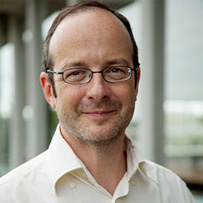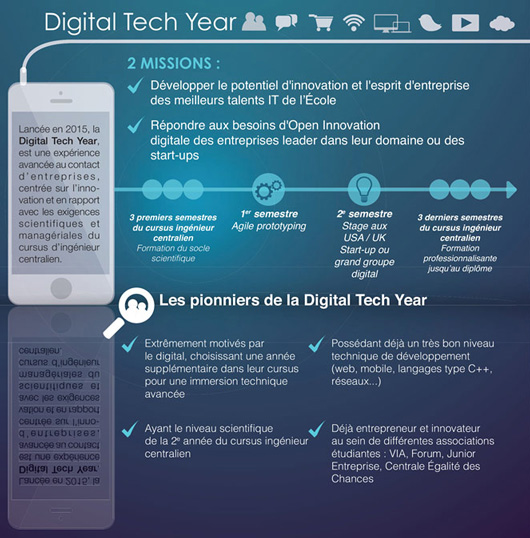Data Science: 3 options
The world of data is currently experiencing an explosion in demand for skilled data analysts. For this, the school offers three courses to its engineering students, adapted for future data scientists.
Data Science Track
The proliferation of data management systems, along with considerable progress made over the past decade in terms of calculation power, have contributed to creating a new discipline at the intersection of IT and applied mathematics: data science. The objective is to develop mathematical models and their IT solutions to analyze and interpret massive quantities of data.
This program proposed by CentraleSupélec aims to teach new scientific methods of analysis, processing and interpretation of “Big Data”, as well as addressing the challenges of innovation. In this context, students develop their skills and knowledge in fields such as machine learning, large-scale optimization and distributed computing.
Track objective
The main objective is to develop mathematical models and their IT solutions able to analyze and interpret massive quantities of data.
Exploitation, understanding and interpretation of this data enable companies to innovate by developing new content, products and services. Google, Facebook, Amazon, etc. use these technologies to develop their products effectively and in a way which is adapted to the evolution of the markets.
The three major challenges in science:
- The quantity of the data, which is often collected continually and generates a colossal amount of information
- The huge diversity of types of information and their heterogeneity, making it possible to treat complex problems
- The nature of rare or critical events which we must be able to identify, despite their irregular and infrequent occurrences
This proposed program aims to introduce new scientific methods for processing, interpreting and understanding "Big Data" information, while also meeting the challenges outlined above. For this, automatic learning, large-scale optimization and distributed calculation are the core disciplines of scientific teaching in this era of digital innovation.
See the detailed presentation of the program
Teaching team
- Nikos Paragios - Full Professor in the Department of Applied Mathematics of CentraleSupélec and Affiliated Research Scientist at Inria
- Matthew Blaschko - Affiliated Associate Professor in the Department of Applied Mathematics of CentraleSupélec
- Frédéric Cazals - Professor of Applied Mathematics at CentraleSupélec
- Lionel Gabet - Professor in the Department of Applied Mathematics of CentraleSupélec
- Iasonas Kokkinos - Associate Professor in the Department of Applied Mathematics of CentraleSupélec and Affiliated Researcher at Inria
- Pawan Kumar - Associate Professor in the Department of Applied Mathematics of CentraleSupélec and Affiliated Research Scientist at Inria
- Steve Oudot - Permanent Research Scientist at Inria and and Affiliated Adjunct Professor in the Department of Computer Science at École Polytechnique and the Department of Applied Mathematics of CentraleSupélec
- Jean-Christophe Pesquet - Full Professor in the Department of Computer Science of the Université Paris-Est Marne-la-Vallée and Affiliated Adjunct Professor in the Department of Applied Mathematics of CentraleSupélec
- Émilie Chouzenoux - Assistant Professor with the Université Paris-Est Marne-la-Vallée (LIGM, UMR CNRS 8049)
Program
The Data Sciences track offered by CentraleSupélec begins in the 2nd year of the Engineering program. This is combined with the Applied Mathematics option, based on the following course offerings:
Foundations of Deep Learning
The advent of big data and powerful computers have made deep learning algorithms the current method of choice for a host of machine learning problems. Over the last few years deep learning systems have been surpassing by a large margin the previous state-of-the-art systems in tasks as diverse as speech recognition, image classification, and object detection.
Deep architectures are composed of multiple levels of non-linear operations, such as in neural nets with many hidden layers. Searching the parameter space of deep architectures is a difficult task, but learning algorithms such as those for Deep Belief Networks have recently been proposed to tackle this problem, with notable success. This course will discuss the motivations and principles regarding learning algorithms for deep architectures, starting from the unsupervised learning of single-layer models such as Restricted Boltzmann Machines, and moving on to learning deeper models such as Deep Belief Networks.
The course consists of the following eight lectures (3 hours each), and a lab section.
Foundations of Machine Learning (M1)
Machine learning is essentially the intersection between statistics and computation, though the principles of machine learning have been rediscovered from many different traditions, including artificial intelligence, Bayesian statistics, and frequently statistics. This course gives an overview of the most important trends in machine learning, with a particular focus on statistical risk and its minimization with respect to a prediction function. A substantial lab section involves group projects on data science competitions and gives students the ability to apply course theory to real-world problems.
Foundations of Signal Processing and Sparse Coding (M1)
This class will introduce mathematical concepts and techniques to achieve a solid understanding of the fundamental principles of linear signal processing, as well as recent research on nonlinear signal processing, with a focus on sparse coding. Starting with the fundamentals of linear signal processing, we will see how the main notions of Fourier transforms can be understood in terms of a change of basis, and use this intuition to present both continuous- and discrete- time signal processing. Moving on from the harmonic basis we will then cover the basics of over-complete bases, time-frequency analysis and wavelets. This will lead us to techniques developed around sparse coding with overcomplete dictionaries, involving optimization with sparsity-inducing norms and dictionary learning.
Foundations of Discrete Optimization (M1)
Discrete optimization is concerned with the subset of optimization problems where some or all of the variables are confined to take a value from a discrete set. In this course, we will study the fundamental concepts of discrete optimization such as greedy algorithms, dynamic programming and min-max relationships. Each concept will be illustrated using well-known problems such as shortest paths, minimum spanning tree, min-cut, max-flow and bipartite matching. We will also identify which problems are easy and which problems are hard, and briefly discuss how to obtain an approximate solution to hard problems.
Foundations of Neural Information Processing
Neural information processing is the study of computational systems for data understanding. It covers a range of techniques, including statistical learning theory, information theory, graphical models, and non-linear and discrete optimization, as well as their application to important prediction problems facing science and industry. Summarizing some of the major results of the machine learning research community of the past few decades, as well as their interrelationships, this course covers fundamental techniques that can be applied to a wide variety of real-world problems.
Foundations of Geometric Methods in Data Analysis
Data analysis is the process of cleaning, transforming, modeling or comparing data, in order to infer useful information and gain insights into complex phenomena. From a geometric perspective, when an instance (a physical phenomenon, an individual, etc.) is given as a fixed-sized collection of real-valued observations, it is naturally identified with a geometric point having these observations as coordinates. This course reviews fundamental constructions related to the manipulation of such point clouds, mixing ideas from computational geometry and topology, statistics, and machine learning. The emphasis is on methods that not only come with theoretical guarantees, but also work well in practice. In particular, software references and example datasets will be provided to illustrate the constructions.
Foundations of Polyhedral Combinatorial Optimization
Polyhedral techniques have emerged as one of the most powerful tools to analyze and solve combinatorial optimization problems. Broadly speaking, combinatorial optimization problems can be formulated as integer linear programs. In this course, we will study the fundamental concepts of polyhedral techniques such as totally unimodular matrices, matroids and submodular functions. Each concept will be illustrated using well-known problems such as bipartite matching, min-cut, max-flow and minimum spanning tree. The course is divided into two parts. In the first part, we will study easy problems (those that admit efficient optimal algorithms). We will use polyhedral techniques to explain why these problems are easy. In the second part, we will study hard problems (specifically, NP-hard problems). We will use polyhedral techniques to obtain provably accurate approximate solutions for various hard problems.
Foundations of Large Scale & Distributed Optimization
In a wide range of application fields (inverse problems, machine learning, computer vision, data analysis, networking, etc.), large scale optimization problems need to be solved. The objective of this course is to introduce the theoretical background that makes it possible to develop efficient algorithms to successfully address these problems by taking advantage of modern multicore or distributed computing architectures. This course will focus primarily on nonlinear optimization tools for dealing with convex problems. Proximal tools, splitting techniques and maximization-minimization strategies that are now very popular for processing massive datasets will be presented. Illustrations of these methods on various applicative examples will be provided.
Career opportunities
The fields of application linked to data science are vary widely:
- digital sector
- health and biotechnologies
- finance
- marketing
- robotics
- insurance
- and more
Contact :
Guillemette Breysse
Coordinator
Téléphone : + 33 (0)1 41 13 17 95
Courriel : guillemette.breysse@ecp.fr
MSc in Data Sciences and Business Analytics
(This Program is offered and coordinated by CentraleSupélec and ESSEC Business School)
Society has entered a new digital era where creation, consumption and use of digital content have changed our lives. Proliferation of sensors, the Internet of Things, and digital services continuously produce highly heterogeneous, highly unstructured and high-dimensional data barely interpretable with human intelligence. Reasoning and mining on this data can be a novel way of rethinking out of the box/addressing unsolved old problems or they can be a wealth creation engine through the introduction of novel practices, services and policies. The future of business intelligence therefore relies on mastering both data mining and business analytics techniques, which become the pillars of such an interdisciplinary effort.
Intelligent usage of data is the root of today’s business decisions and the driving force of the societal and economical evolution of the years to come. It is probably one of the most important topics of our day. Analysts estimate that data-related businesses generated about $10 billion in 2012, and will probably generate more than $30 billion in 2017.
In terms of employment, companies and organizations will need a couple of hundred thousand data scientists and business leaders for the year to come. Furthermore, the exponential growth in content generation will certainly create a tremendous need for highly qualified individuals with an in-depth knowledge and global understanding of the technological and business challenges in such an era of digital evolution. Recent business studies converge to an estimated need of educating several million data scientists and leaders within the next decade.
This is why CentraleSupélec and ESSEC Business School, among the best engineering and business schools in the world, have partnered to propose a very innovative and complete program.
Academic Liaison
Guillemette Breysse - guillemette.breysse@centralesupelec.fr
2nd year Master’s Applied Mathematics: Vision and Learning
Objectives
Applied Mathematics specialization: Vision and Learning offers a coherent and solid initiation to a range of high-level mathematical (or IT) concepts, models and techniques, applicable to vision, perception and learning, focusing teaching on highly active fields of research:
- artificial vision
- automatic analysis of signal and image
- emulation of human perceptive or adaptive behaviors
This Master’s track is aligned with the perspective of rapid and exciting development of mathematics applied to modeling and to emulation of human intelligence, development of which is supported by the accelerated growth in power of cognitive sciences.
Classes
The Master’s track offers a coherent and sound initiation to a range of high-level concepts, models and mathematical (and IT) techniques that can be applied to computer vision, perception and learning. It comprises courses oriented towards mathematics applied to computer vision and statistical learning, as well as IT courses, providing a program which is both theoretical and practical covering developed themes:
- Harmonic analysis and wavelet analysis in signal and image processing
- Variational methods and Partial Differential Equations (PDE) in image analysis
- Stochastic relaxation and Markov fields
- Theory of elastic deformation applied to automatic imaging and shape recognition
- Theories of information and shape recognition
- Probabalistic learning theory
- Statistical image models
- Parsimonious statistical models and formal neuronal networks
- Modelling intelligent tasks by minimizing complex functions
- Sound analysis
- Internship
Contacts
Specialization Director, Professor at CentraleSupélec
Nikos Paragios - nikos.paragios@centralesupelec.fr
Career opportunities
Sectors of industry
This specialization mainly leads to careers with a major component in technologies and software and where data (in the general sense) fundamentally create value for the company. The natural career prospects for this specialization are statistical engineering positions, systems architects, image processing and vision software architects, research engineers, statistics project managers or advisors in a consultancy firm.
- Transport sector (embedded systems)
- IT industry (information systems)
- Large industrial equipment sector
Types of accessible employment
- Systems architect
- Research engineer
- Consultant
- Design consultant
Co-authorization
- Paris Descartes University (sponsor establishment)
- ENS Cachan
- Université Paris-Dauphine
- École Polytechnique
- ENST
- ENPC
Research track
CentraleSupélec offers a program of excellence focused on science and research. It is aimed at CentraleSupélec engineering students who are passionate about science and who want to discover the world through progressive learning along with their École Centrale Engineering program.
What is the Research track?
- This track is based on developing a research project over three years within one of the Research Center laboratories.
- The program is custom designed. The international trip is integrated with the research project.
- Each student in the track will choose a science supervisor within their introductory team. This supervisor will play an important role in the program as the student’s main resource. Under their supervision, the student will learn about research positions and completing a project through immersion within a team.
- After three years in the track, the student will receive the ECP-R label as a supplement to their École Centrale Engineering program diploma, in recognition of their contribution to the world of research.
The ECP-R label recognizes and promotes this expertise for those who wish to embark on a doctoral thesis or work in a company R&D center.
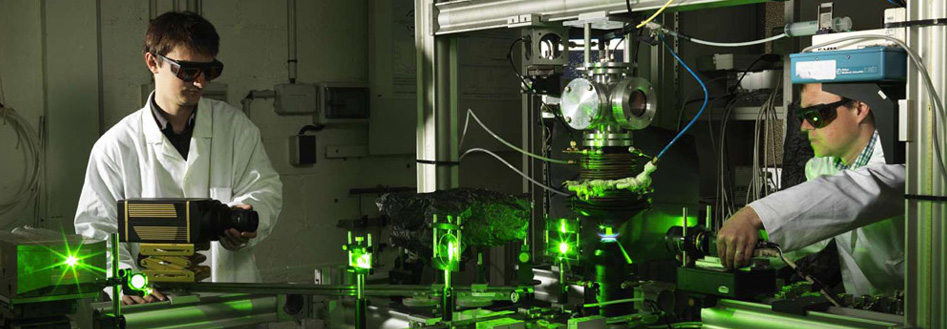
Objectives
- To train engineers able to develop strong links between academic research and business, guaranteeing innovation success
- To offer a track for students who are passionate about science
- To orient students towards a doctorate, a qualification that is recognized both for leadership in large projects within international companies and necessary for an academic career
- To familiarize students with the world of research and help them to build a solid professional network
A few words from:
- Maxime Van de Moortel, Research track, accepted directly to study PhD Math at Cambrige University in 2015
See the vidéo
- Tristan Léger, Research track, accepted directly to study PhD Math at Cambrige University in 2015
See the vidéo
- Théo (promo 2016) completing the Research track in the École Centrale Paris Applied Mathematics Laboratory. He hopes to specialize in the field of Big Data.
See the vidéo
- Christophe (promo 2016), a member of the Centrale Equal Opportunities association completing the Research track in a novel way: in Human Sciences
Voir la vidéo
The track in detail
Throughout the three years of the project, students encounter and acquire expertise in thematic scientific research, development of experimental skills and techniques, theoretical approaches and digital simulation, written and oral communication skills, teamwork and conducting a research project.
- 1st year: Students are offered complementary and in-depth modules in addition to the common core (Mathematics, Thermal Sciences, Physics, Biology, Mechanics, and Information Sciences). Their Issues project is integrated with their research project one day per week of work.
- 2nd year: Students devote two days per week to their project. Their stay abroad is chosen according to the project, either in a university placement to further complementary studies, or in a laboratory that is a scientific partner of the team.
- 3rd year: Students help to supervise 1st-year students. The six-month full-time end-of-studies internship enables them to finalize their project.
Practical information
- A provisional selection will be made September 30 of the 1st year, based on a motivation interview.
- Final selection November 30, wherein approximately 20 students will be selected
- Annual commitment from the student, with tacit renewal each year
- A supervision committee ensures each student is completing their track under optimal conditions.
École Centrale celebrates science
A scientific conference is organized in late September, based on project presentations given by students in the 3rd year of the track. This conference is aimed at a large audience, both within and beyond the school.
Contact
Bruno Palpant, Professor, Quantum and Molecular Photonics Laboratory
Téléphone : +33 (0)1 41 13 16 26
E-mail : bruno.palpant@centralesupelec.fr
Digital Tech Year/Digital track
Objective
The objective of the Digital Tech Year is to offer those students who are most passionate about IT an advanced experience, in collaboration with companies, focused on innovation and aligned with the scientific and managerial requirements of the CentraleSupélec program.
The Digital Tech Year is an initiative of the CentraleSupélec Digital Innovation Department, co-directed by Renaud Monnet, Director of the CentraleSupélec Digital and Information Systems Institute and Robert Vesoul, CEO of the ST Group.
In the course of the past year, over three sessions, 47 CentraleSupélec students have developed 38 prototypes in collaboration with 25 partner companies in the Paris Digital Lab. One of the IT projects was presented at the CES 2016 by the students involved!
And finally, 15 highly innovative start-ups welcomed students during their second semester in San Francisco, New York, Boston, London, Lausanne and Hong Kong.
In one year of placement, students of the Digital Tech Year undertook four intense projects in collaboration with companies.
CentraleSupélec invests in its most talented digital innovation students and doubles the capacity of its Paris Digital Lab.
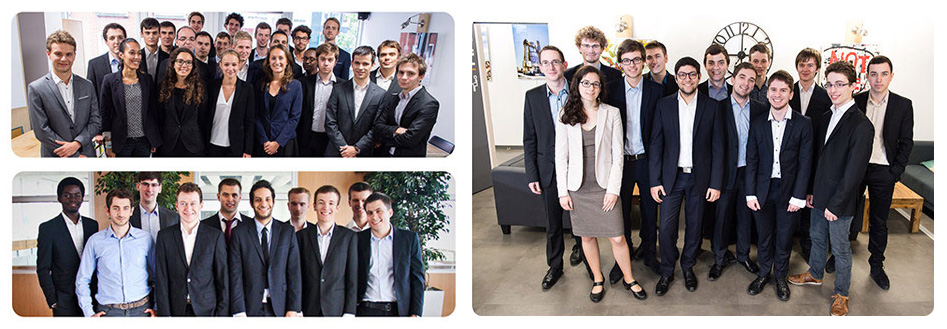
1st assignment
The 1st Digital Tech Year assignment: to develop the innovation potential and entrepreneurial spirit among the best IT talents of CentraleSupélec.
Organization: the year is divided into two semesters.
1st semester :
Students join the CentraleSupélec Paris Digital Lab to develop prototypes in agile and intensive mode, to meet the innovation needs of businesses. “Learning by doing” and coaching by tech and design experts are the two key elements of success of this new tool, similar to those proposed by the most prestigious American universities.
Students can take advantage of the Innovation Factory ecosystem, on the Campus Cluster Paris Innovation, Paris 13th arrondissement (shared with design, web and management students, conferences and meetings, and access to the FabLab, etc.).
Ten partners (large organizations and start-ups) have already agreed to offer innovative projects to the Paris Digital Lab.
2nd semester :
Students complete a six-month intensive internship abroad within a large digital company or a start-up in the U.S., either in the Silicon Valley or on the East coast between New York and Boston, or in other international digital hubs like London, Zurich, Israel.
The profile of new students selected to join the Digital Tech Year:
- Highly motivated by the digital sector, choosing an advanced technical immersion
- Already possessing a good or very good level of technical development (according to profile: web, mobile, networks, etc.)
- Having a scientific level equivalent to 2nd year of CentraleSupélec
- Already an entrepreneur and innovator within different associations: VIA, Rezo, Forum, Genius, and Junior Enterprise
2nd assignment
The Digital Tech Year must meet the Open Innovation digital needs of companies who are leaders in their sectors.
The 25 partners who have joined Paris Digital Lab include AccorHotels, Canal+, Chronopost, Randstad, Days of Wonder and Withings, all offering various digital projects.
- They must verify the feasibility of a concept before launching an industry development.
- They prefer to present a prototype to their clients than to do a market study.
- They want to verify the robustness of a new emerging technology.
- They want to integrate the opinions of generation Y.
- They need a working environment to facilitate and promote collaboration between information science and marketing/innovation.
- They have an internal laboratory which they would like to open to the public
Follow us on Twitter : ParisDigitalLab
Contacts
Co-director of the CentraleSupélec “Digital Innovation” Department, Director of the Digital Institute
Monnet Renaud - renaud.monnet@centralesupélec.fr
Co-director of the CentraleSupélec “Digital Innovation” Department, CEO of the ST Group
Vesoul Robert - robert.vesoul@st-groupe.fr
All details about this track can be found on the website
Success stories
- Jean-Baptiste Rudelle, Co-founder and CEO of Criteo. (Supélec 91). Voir la vidéo
- Renaud Séguier, Co-founder of Dynamixyz, professor at CentraleSupélec. Voir la vidéo
- Matthieu Hug, Co-founder of RunMyProcess, acquired by Fujitsu in 2013. (Supélec 97). Voir la vidéo
- Anevia created by Tristan Leteurtre, École Centrale Paris 2003. Initiation to the Paris Stock Exchange. Voir la vidéo
- Cédric Hutchings Co-founder and MD of Withings, marketing connected health applications (École Centrale Paris 99). Voir la vidéo
Also at TEDxBrussels - Bernard Liautaud, Founder of Business Objects. (École Centrale Paris 84). Voir la vidéo
Entrepreneurship track
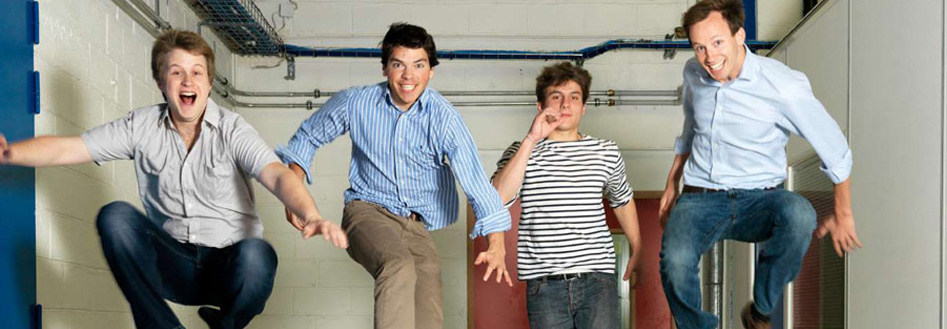
Objective: to move from an idea to an outcome
The school offers an experimental track to student engineers, organized across the program for all entrepreneurs undertaking a creative project.
Moving from an idea to an outcome: students can join this track whatever year they are in, 1st, 2nd or 3rd.
The school provides an environment that is favorable to innovation and business creation: program organization, an integrated semester abroad and personalized supervision.
The track in detail
1st year :
Students are offered complementary and in-depth modules in addition to the common core dedicated to entrepreneurship and innovation. Their Issues project is integrated with their research project one day per week of work.
2nd year :
Student-entrepreneurs devote two days per week to their creative project. Their stay abroad is chosen according to the project, either in a university placement to further complementary studies, in a start-up, or spent in international development of their creative project.
3rd year :
Students can help to supervise 1st-year students if they wish. They join the Centrale Entrepreneurs stream and their six-month full-time end-of-engineering-studies internship is entirely devoted to developing/creating their project.
Gallery of CentraleSupélec start-ups
Increasing numbers of students are interested in creating their own company. Here is a gallery of recent start-ups created by our students. Technology, environment, e-commerce, online services, social entrepreneurship: all original initiatives crowned by success.
You can also see a playlist of videos of the above start-ups presenting their activities.
Contact
Guillemette Breysse, Project Manager, CentraleSupélec Engineering Program Board- guillemette.breysse@ecp.fr
CentraleSupélec FabLab
Scale modeling - scanning - printing - machining - duplicating - mechanizing. Since September 2012, the school has an area dedicated to technological innovation, a FabLab called La Fabrique.
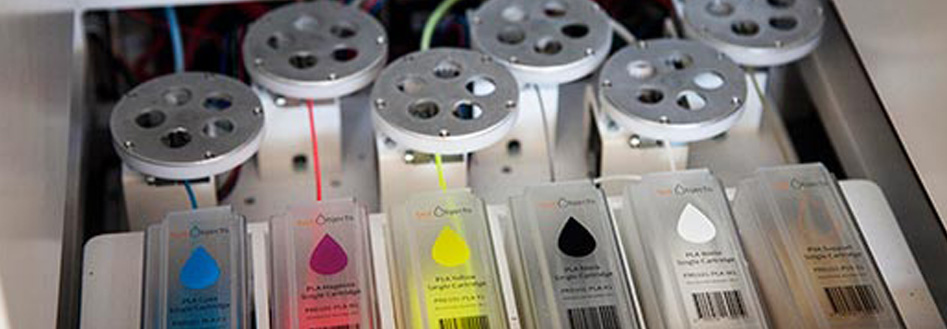
La Fabrique unites pooled rapid model and prototyping resources for use by CentraleSupélec student engineers and Incubator start-ups. It contains several manufacturing machines, including a rapid 3D printing machine, various tools, and support for project leaders to finalize a scale model or prototype.
The initiative is jointly sponsored by the Directorate of Studies and the CentraleSupélec Incubator. La Fabrique encourages exchanges between the various users, students and entrepreneurs, and therefore contributes towards a real culture of innovation through practice, enabling each individual to confront their ideas with reality, as soon as possible.
Open Innovation Institute
CentraleSupélec, Altran, Mazars and Société Générale together created the Open Innovation Institute (IOI).
This Institute will help to narrow the gap between large companies and start-ups. It will encourage and facilitate exchanges between the two worlds and develop synergies with students and laboratories of the school.
Open innovation
Open innovation is a corporate model that has adapted its innovation strategy to gain the best advantages from the external environment. It consists of putting aside a vision of a culture where everything is done internally to instead integrating collaborations with all actors within the ecosystem: clients, suppliers, start-ups, and sometimes even competitors. Over the past 10 years, open innovation has gained an increasingly central role in the innovation strategies of the most successful companies.
The role of start-ups
In a context combining globalization, acceleration and democratization of technologies, start-ups have an increasingly important role in the innovation strategy of large companies. They can quickly explore a large number of potential solutions to a given problem, with much lower structural costs. This is why they have become potential accelerators of innovation for large companies. Start-ups are looking for quality links with large companies to accelerate their access to the market and their growth.
However, very important differences exist between the world of large companies and that of start-ups, especially on a cultural level, in terms of time scales, decision-making processes, quality policies and other considerations.
Mastering new relationships with start-ups to integrate them in the chain of innovation therefore remains challenging for large companies.
Les missions de l’Institut Open Innovation :
Comprising a permanent team of around 10 people at the end of 2014, the IOI has a double objective, both theoretical and practical.
On the theoretical dimension, the IOI works to:
- develop knowledge in the field of open innovation strategies and approaches;
- write case studies and white papers, best practices, etc., about business interactions between large companies and start-ups;
- develop educational tools for partner company and start-up executives and managers to facilitate collaborations between the two types of structure;
- develop teaching tools for students for classes,
- generate opportunities for projects, internships, placements, etc., linked to open innovation.
On the practical dimension, the IOI focuses on:
- implementing start-up accelerators developed specifically for partner large companies to give them every chance to have access to this universe;
- practically supporting partners and large client companies in their open innovation approaches with start-ups, by organizing meetings and implementing effective collaboration processes;
- helping start-ups to find growth potential in their relationships with large companies by operationally supporting them in the accelerators described above;
- helping start-ups to contact and take advantage of the rich resources of partner schools, particularly through student projects, internships, highly competent experts and laboratory equipment;
- helping students from partner schools to better understand the processes of value creation through innovation, via direct participation;
- helping laboratories to develop collaboration contracts with the business world to facilitate and promote research.
The Open Innovation Institute must become a real center for open innovation expertise.
It will enable CentraleSupélec to forge stronger relationships with large companies as well as a vast network of start-ups, to reinforce teaching/project links, enrich its incubation offering and improve its expertise in the field of innovation, which is essential for the success of the school.
The IOI objective for 2014 is to unite 10 industrial partners. Société Générale, Mazars and Altran are already involved in this initiative as founding members, as well as AXA Direct, as a partner member.
At the end of 2014, around 50 start-ups are expected to be developing in collaboration with the IOI, companies and partner schools.
Work-Study track
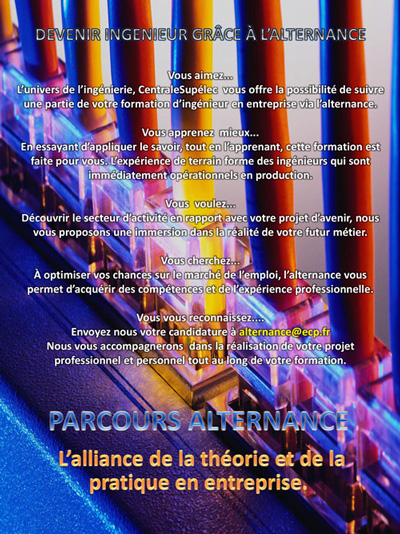
Since the beginning of the 2010 academic year, each student engineer completing the École Centrale Éngineering program has the possibility of completing part of the program while working within a company, right from the first year.
This track is particularly suited to students with a preference for a certain industry in which they would like to work after their studies, but also for those who would like to begin earlier working and experiencing how a company functions.
Work-study students invest themselves simultaneously in the school and in their company, in its various business operations (activities, missions, human relations, strategy, organization, project management, innovation, communication, etc.).
The Work-Study track is ideal for those who wish to put what they learn at school into practice progressively, by applying it to concrete examples.
The Work-Study track can be organized either :
- with an Apprenticeship Contract for students who have successfully passed the competitive entrance exam for the École Centrale Engineering program in their first year; or
- with a Professionalization Contract for students who have successfully completed their first two years of the École Centrale Engineering program.
The track is reserved for students completing all of their studies with CentraleSupélec. It is therefore not possible for students completing a double degree to apply.
The work-study student is present in their company two days per week, follows all fundamental classes on the campus and completes concrete and varied projects for their host company. They receive the same teaching (common core, elective modules and projects) and the international experience which they will complete through the host company.
Once they have obtained their degree, work-study students will be able to leverage their experience to further their careers.
Read what work-study students have to say:
- Jérôme, Physical and Engineering Sciences Preparatory Classes, Ste Geneviève high school, working with HSBC
- Mehdi, Mechanical Engineering BS, Pierre and Marie Curie University, working with GDF Suez
- Laurent, Mathematics-Physics Preparatory Classes, Berthelot high school, working with SNCF
- Augustin, Physical and Engineering Sciences Preparatory Classes, Ste Geneviève high school, working with Safran Aircraft Engines
- Claude-Alexandra, Physical and Engineering Sciences Preparatory Classes, Lakanal high school, working with RTE
- Florent, Computer Science and Technology Preparatory Classes, Gustave Eiffel high school, working with MBDA
Apprenticeship
Joining the Work-Study track means:
- Graduating in three years.
- Joining a prestigious company and discovering all the dimensions of its business activities in three- to six-month assignments.
- Completing a quality international placement during one semester in the 2nd year.
- Completing an option entirely of your choice in the 3rd year with the possibility of completing a Master’s degree in parallel.
During their studies, work-study students receive teaching that is adapted and customized to their situation. They thus gain a real corporate and industry culture that they can use to their advantage once they have completed the Engineering program.
Application
- Registration until September 23
- Admission on the strength of the application and interview
- Start working within a company November 1, 2016
- Deadline for contract signature December 1, 2016
Details
- Length: on average 600 hours per year
Status
- The work-study student has the status of a salaried employee.
- The company pays a salary (% of the minimum wage).
Rhythm
- 1-2 days per week working in the company in term time
- 100% working in the company during school holidays
Applicants
- This program is for all students who have successfully passed the competitive entrance exam for the CentraleSupélec École Centrale Engineering program.
The advantages
- Gaining both experience working in a company and a degree that is appreciated by companies looking for new talents
- Financial independence
- Receiving learning support both in a company and at the school
- A social experience
- The possibility to transform the work contract into a permanent contract
Download the Apprenticeship Contract brochure
Professionalization
Organization of studies
Applicants are either in their 2nd year or gap year. For students in their 2nd year, the Work-Study track can begin upon their return from their international internship (June), and for students in a gap year, at the end of their internship (June-August).
The Professionalization Contract is signed by the student, the host company and the school in June to allow for an integration period of three months before the beginning of the 3rd year of studies.
The 3rd year is then divided into two parts: a first part that includes classe combined with working within the company, and a second part in which the student works full-time within the company. During the first part the company offers the student a project in which they can directly put what they are studying in class into practice simultaneously. During the second period, the student is directly and rapidly integrated into company engineering projects.
The choice of company is made according to the 3rd year options chosen by the student:
- Energy
- Applied Mathematics
- Sustainable Building and Construction
- Mechanics, Aeronautics and Space
- Industrial Engineering
- Physics and its Applications
- Information and Advanced Systems Engineering
- BioTech Engineering
Alongside the option module, the work-study student participates in career workshops specifically aimed at work-study students. These workshops enable the students to capitalize on the skills gained through their experience working in a company. Note that students completing the Work-Study track are exempt from stream and project option modules, as the latter are completed within the company.
Download the Professionalization Contract brochure
Work-Study Track Director
Géraldine Aude
Téléphone : +33 (0)1 41 13 13 64
Courriel : alternance@ecp.fr
A few words from students
Read what work-study students have to say:
- Jérôme, Physical and Engineering Sciences Preparatory Classes, Ste Geneviève high school, working with HSBC
- Mehdi, Mechanical Engineering BS, Pierre and Marie Curie University, working with GDF Suez
- Laurent, Mathematics-Physics Preparatory Classes, Berthelot high school, working with SNCF
- Augustin, Physical and Engineering Sciences Preparatory Classes, Ste Geneviève high school, working with Safran Aircraft Engines
- Claude-Alexandra, Physical and Engineering Sciences Preparatory Classes, Lakanal high school, working with RTE
- Florent, Computer Science and Technology Preparatory Classes, Gustave Eiffel high school, working with MBDA
Examples of international placements
All work-study students have the option of going abroad for a placement of minimum five months. Some examples:
- The Netherlands with Air France
- Finland with DCNS
- Belgium with RTE
- United Kingdom with MBDA, Subsea 7, SNCF
- Germany with Total, GDF Suez, SNCF
- Canada with CCR
- United States with HSBC, Dassault
- Brazil with Sagemcom
- Morocco with Royal Air Maroc
- China with IBM, EDF, ESI Group
- Hong Kong with HSBC
- India with PSA
- Malaysia with Altis Semiconductor
Information brochures
Sustainable Building and Construction option
Building and Construction careers contribute to modeling and improving our daily environment. Works completed are always prototypes, designed and developed by teams dedicated to each project, in a context where Communication, the Environment and Sustainable Development have central roles.
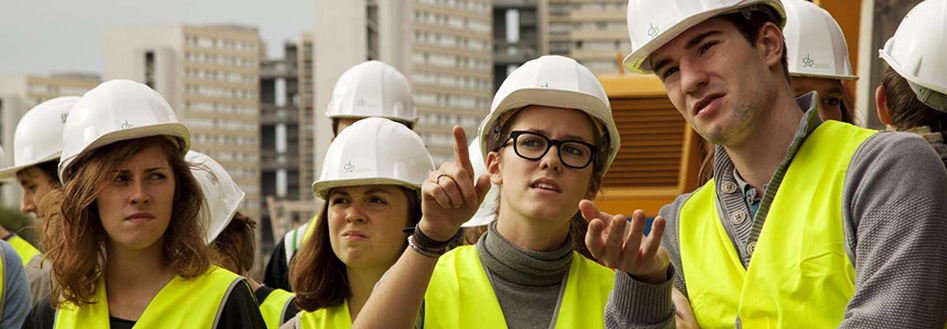
Objectives
To educate generalized engineers to be able to adopt professional positions that are very varied in this wide field, ranging from urban planning to construction, from energy to services, with a scope reaching to France, Europe and worldwide, with the majority of our business partners being in export, international market leaders in their fields and practicing a multicultural management approach.
To offer a wide range of prospects in the sectors of building and construction, which are seeking high-level engineers in all fields, from works management to sales, from operations roll-out to infrastructure exploitation, from management monitoring to studies, from construction projects to project funding.
Teaching
Option instruction is balanced between, on the one hand, acquiring technical and scientific knowledge, and on the other, applying this knowledge to practical applications.
The Option instruction raises awareness in students about operational dimensions of business, as many instructors have business backgrounds, and also through applying knowledge in projects. This teaching approach, combined with the careers stream modules, prepares students for their future professional careers in a very tangible way.
To encourage such contact with real professional contexts, most instructors of this option are business professionals working in companies, renowned for their expertise in the subject they teach.
A large system of delegation (organizing visits, teaching assessments, Option website management, contacts with partners) enables students to become the entrepreneurs of their option.
Students interested in this program can study the shared Civil and Environmental Engineering option in parallel with CentraleSupélec, ENPC and ENS Cachan.
Program
The first four-month period
The first four months focus on acquiring knowledge in fundamental Sciences and Technologies in the field of Construction, in combination with Design and Development Techniques and Methods and project visits, all proposed by partner companies.
This period provides students with the opportunity, through their modules, presentations by professionals and company visits, to discover the various career prospects available to them, helping them in their choice of future career and in choosing their end-of-studies internship accordingly.
The second four-month period
During the following four months, students put what they have learned into practice over the course of four elective modules, in which they work in teams on projects concerning real operations in collaboration with partner companies, and present their work before juries of professionals.
Particular focus is placed on the environment and sustainable development in these projects.
Study trip
A study trip takes place in the final week, enabling students to visit exceptionally successful exported projects by partner companies (examples of recent destinations: South East Asia, Cuba, United Arab Emirates, etc.).
Classes
Fundamental Science and Technology
- Hydraulics
- Geotechnology
- Materials
- Structural Mechanics
- Reinforced and Pre-stressed Concrete
- Metal Constructions
- Economics and Contracts (Construction stream)
Design and Execution Techniques and Methods
- General Construction Procedures
- Works of Art
- Special Foundations
- Roads
- Spatial Planning
- Organizing Construction Projects
- Techniques and Architecture
Elective
- Funding and Planning Large-scale Projects
- Structure Calculation
- Transports
- Real Estate
- Urban Planning
- Infrastructures
- Architecture and Energy Challenges
- Off-shore, Coastal Engineering
- Building Maintenance and Operations
For more information
Contact
Option Director
Laurent LACOIN - laurent.lacoin@centralesupelec.fr
Career opportunities
The field of Planning and Construction is seeking many high-level non-specialized engineers for widely varied positions:
- Planning project manager
- Assembly project manager
- Promotional project manager
- Research engineer
- Commercial engineer
- Works engineer
- Comptroller
- Materials engineer
- Buyer
- and more
Students are placed in positions of responsibility in the course of their end-of-study internship in companies.
The majority of students continue their professional activity in the company, recruited at the end of their internship.
Each year, a few students choose to begin architectural or urban planning studies after completing this option.
Partners
Companies that are leaders in the marketplace for their sectors in France and abroad.
- Bouygues Construction
- Bouygues Immobilier
- Colas
- EDF
- Eiffage Construction
- Fayat
- Egis Group
- NGE Group
- Léon Grosse
- Setec
- SNCF
- Soletanche Bachy
- Spie batignolles
- Tractebel Engineering (ENGIE Group)
- Unibail-Rodamco
- VINCI Construction
Strengths
- Weekly construction site visits, the integration trip and presentations by professionals all enable students, in the course of their first quarter, to familiarize themselves with the various careers before choosing their end-of-studies internship.
- Elective modules of the second four-month period enable students to apply their knowledge to concrete projects.
- The study trip in April enables students to visit large and technical building sites abroad.
Energy option
Objectifs
With increasingly innovative concepts and technologies, and very diverse inspirations, the energy sector will be a significant driver of employment for engineers and researchers in the years to come.
But beyond a solid scientific education (essential for all engineers), students wishing to specialize in science and technology linked to energy must also gain a global understanding of the various dimensions of energy issues (including, for example, economic and geopolitical dimensions) to be able to attain enlightened decision-making positions in this field.
In light of these considerations, the 3rd-year Energy option aims to train students to be aware of the multitude of ramifications of this complex issue, in order to provide them with real perspectives and a large range of prospects in all relevant sectors
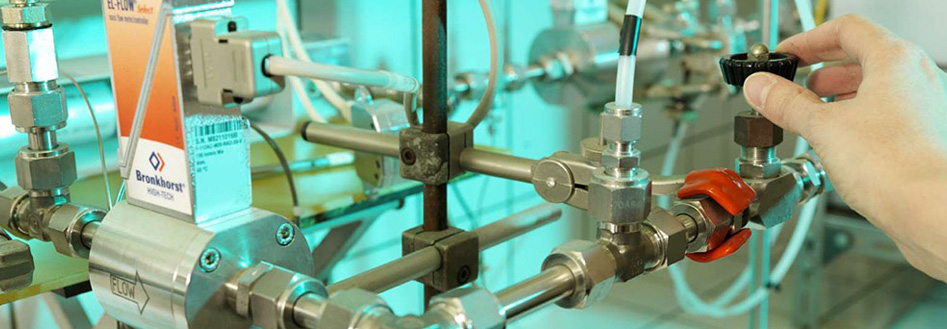
Teaching
Programs offered in this option are original due to the range of fields covered. Indeed, five large sectors of activity are covered: Thermal Energy, Processes, Fossil Fuels, Energy Networks and Electrical Systems. Bridges between the five thematic tracks, in the form of elective modules, enable students to personalize their tracks.
Alongside the Engineering program and in a more or less integrated way, students registered for the Energy option can prepare a Specialized Master’s that is coherent with their program:
- ThS (Thermal Sciences), EMP (Energy Materials and Processes) and MEP (Electrification and Automotive Propulsion) specializations within the Energy Master's program (Université Paris-Saclay Master’s degree)
- GOE2 (Civil Engineering and Environment) specialization within the Civil Engineering Master's program (Université Paris-Saclay Master’s degree)
- PIE (Energy Physics and Engineering) specialization within the Information and Systems Technology Master's program (Université Paris-Saclay Master’s degree)
Program
Core activities common to the five tracks
The Energy option program comprises a common core of general training in energy issues, with the aim of making students aware of two major declinations of this theme: sources and issues. This common core is comprised of five modules: four classes focused on the four main sources and energy streams (hydrocarbons, nuclear, electrical energy and renewable energy); and a large module covering strategic, economical and environmental challenges of energy issues.
A total of 19 elective modules are offered to students to enable them to customize their program in accordance with their professional goals. Like other modules in the shared options program, the aim of all these modules is to stimulate reflection when faced with the major energy issues of the 21st century: challenges that can be broken down into three main energy-consuming sectors: the commerce and residential sector, the transportation sector and the industrial sector.
Each of these five thematic tracks comprised in the option (Thermal Energy, Processes, Fossil Fuels, Energy Networks and Electrical Systems) comprises a set of classes with specific content and equating to around 150 hours of work devoted to the various activities of the project.
Site visits and study trips are programmed in the academic year to enable students to refine their knowledge of the business world.
This option, open to CentraleSupélec students who are enrolled in the Supélec Engineering program, is also compatible with the requirements of their diploma.
Thermal Energy track
This track is based on transfer sciences (essentially thermal and mechanical transfers of fluids) and applications of these materials in addressing energy issues. Application of knowledge gained in this program can be made in the fields of production of all types of energy (fossil, nuclear, renewable).
Processes track
This track mainly comprises teaching pertaining to Process Engineering (material and heat transfers, chemical reactions and reactors) but also to Materials Science (from Mechanics and Physics perspectives), fields in which evolutions often condition performance and innovation. Knowledge of these scientific notions is essential in the energy sector (from production to use).
Fossil Fuels track
This track, launched at the beginning of the 2010 academic year, aims to explore the various scientific and technical aspects of oil and gas exploration in depth. The flagship subjects of this program are Petroleum Geology, Mechanics and Soil, Rock and Structural Dynamics, Seismic Activity, Reservoir Modeling and Specific Digital Methods.
Energy Networks track
This track was launched for the 2011 academic year. The themes of the network are taught with a transversal approach (electrical networks and fluid, heat and information networks), and new sciences and emerging concepts in this field are covered.
Electrical Systems track
This track covers the electrical dimension of energy issues, including, in particular, renewable energies. The main themes addressed in this program are production (nuclear, fossil fuels, hydraulic, cogeneration and machines), demand management, storage, industrial energy use, and the impact of renewable means of production on electrical systems.
For more information
Contacts
- Option Director for the École Centrale Engineering program
Franck Enguehard - franck.enguehard@centralesupelec.fr - Option Director for the Supélec Engineering program
Jean-Claude Vannier - jean-claude.vannier@centralesupelec.fr - Thermal Energy track
Thierry Schuller - thierry.schuller@centralesupelec.fr - Processes track
Marie-Laurence Giorgi - marie-laurence.giorgi@centralesupelec.fr - Fossil Fuels track
Benoît Noetinger (IFP New Energies) - benoit.noetinger@ifpen.fr - Energy Networks track
Marc Petit - marc.petit@centralesupelec.fr - Electrical Systems track
Jean-Claude Vannier - jean-claude.vannier@centralesupelec.fr
Career opportunities
The Energy option prepares students for a wide range of jobs in technology sectors with significant added value or innovation and optimization regulate competitive advantage.
Two main professional areas:
Engineering
From research to design and industrialization of energy systems
Operations
From exploring energy production sites to maintenance and dismantling and managing large projects and business in the field of energy
Natural prospects following the Energy option are in industries associated with production, energy transformation and distribution in all forms (electric, nuclear, oil, solar, wind, etc.), the chemical industry, automobile and transportation industries, motor and propulsion and engineering industries.
More generally, energy specialists in all sectors of activity where energy consumption is significant are hugely in demand, and this will only increase in the decades to come.
Partners
The school currently has 14 partners for the Energy option:
- Air Liquide
- Areva
- CEA
- Colombus Consulting
- DCNS
- EDF
- Eiffage Énergie
- ENGIE
- ERDF
- Fives
- NovaWatt
- RTE
- Total
- Vallourec
Strengths
- The wide variety of prospects, both in France and abroad
- The large range of teaching activities, including advanced modules taught by mixed university teams – industry experts, practical and exploratory activities, direct implementation activities and structured projects where students can expect high quality supervision prior to developing their works autonomously
- A network of instructors from the business world and teaching and research institutions
- A partnership developed with companies encouraging privileged relationships with the professional world
- Close links with the research arena through instructor-researchers collaborating on the program
- Logistical support of four excellent research units in covered fields, within which students undertake several projects (EM2C, LGPM and MSSMat laboratories on the Châtenay-Malabry campus – Energy department on the Gif-sur-Yvette campus)
Industrial Engineering option
Developing goods and service production companies requires satisfaction of client, shareholder, employee, environmental and company needs. This is balanced by the strict constraints shaped by suppliers, competitors and markets. Monitoring this development requires in-depth knowledge of elaboration, deployment and exploitation methods, as well as methods of termination of procedures and organizations.
Industrial Engineering option website
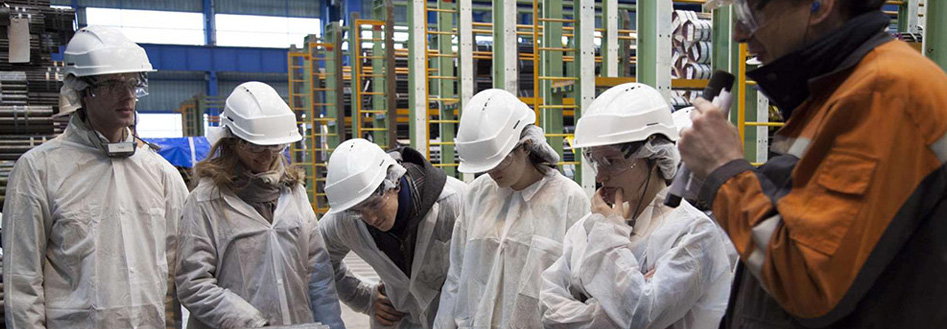
Objectives
Analyzing, modeling, assessing and optimizing the organization of manufacturing company processes and services. Skills acquired over the course of the program should enable students to:
- Quantify probabilities, reliability, and risks pertaining to market, suppliers, clients, technology, etc.
- Specify products, processes and organizations, etc.
- Assess and optimize costs, solution values, etc.
- Guarantee quality of development, production, distribution, etc.
- Organize and optimize flows, operations, stocks, lines, etc.
- Plan and optimize IT, human, financial and energy resources, etc.
- Comptrolling, etc.
Pédagogie
During the first eight months, classes follow a distributed agenda of 1/3 academic teaching, 1/3 case studies and 1/3 industrial project activities. Academic teaching and case studies are allocated within an option of 36 24-hour modules, while the project entails a contract of objectives negotiated with the client company. Each project is completed by a group of five students.
Following this initial eight-month period, an individual six-month internship in a company ensues. This experience is resolutely oriented towards improving the performance of the company, and is generally concluded in terms of gains (financial, reliability, productivity, flexibility, reactivity, etc.)
Program
The multidisciplinary common core
Four multidisciplinary modules on methodology and modeling which are useful across the board are completed by all students:
- Introduction to Industrial Systems
- Introduction to Modeling and Optimization
- Risks of Industrial Systems
- Company Management, Innovation and Management
Each student chooses one track among four:
- Developing New Products and an R&D Strategy
- Performance and Organization of Industrial Systems
- Supply Chain Management
- Management of Safety and Security
Elective modules
In a series of 20 24-hour modules, each student chooses five. The choice is entirely unconstrained. These elective modules range from Engineering Sciences (such as Robust Design, Information Systems, Quality, Production Modeling and Simulation, Lean Manufacturing), to Operational Research (Combinatorial Optimization, Graphs, Networks, Stochastic Models, Multicriteria Decision-making Support, Simulation, etc.) along with Human Sciences and Management (Innovative Organizations Theory, Human Resources Management, Advanced Management Control, Investment Decisions, etc.).
Choices of elective courses enable students to customize their programs, and they will be supported in their choices both by the directors of the various tracks and by industrial partners.
The project
The project is undertaken in groups of five students from October through March, alongside scientific and technical classes. Requiring 150 hours of investment per student (750 hours per project), it satisfies a real industrial need and a contract of objectives is concluded. The project is assessed on the quality of submissions to the company. Each project can rely on the support of two instructors, a methodological resource for organizing the project and a scientific and technical resource according to the subject of the project.
Internship
Over the course of six months working within a company, students can implement some of the skills they have acquired, as well as developing further skills of a professional engineer.
Modules
Common core
Four transversal modules covering methodologies and modeling relevant for all student profiles are completed by all students:
- Introduction to Industrial Systems
- Introduction to Modeling and Optimization
- Decision-making Support
- Introduction to Risk Analysis in Complex Systems
Developing New Products and R&D Strategies track
- Design Engineering
- Marketing: Clients, Practices, Services, Business Models
- Designing Complex Systems
Performance and Industrial Systems Operations track
- Modeling and Simulating Production Systems
- Total Productive Maintenance – Maintenance Reliability
- Lean Management
Supply Chain Management track
- Supply Chain Strategy and Design
- Directing Flows and Managing Stocks
- Stochastic Models and Applications
Organizational Transformation track
- Investment Decisions, Performance Management
- Company Direction, Innovation and Management
- Managing Complex Projects
Elective modules: choose five
In a series of 20 24-hour modules, each student chooses five from the list below. The choice is entirely unconstrained.
- Creativity: Learning and Management
- Multicriteria Decision-Making Support
- Advanced Optimization through Practice
- Client and Media Management in IS
- Sustainable Design
- Advanced Microeconomics
- Games Theory: Concepts and Applications
- International Distribution and Transport Organization
- Advanced Design Engineering
- Crises: Genesis, Management and Anticipation
- Planning and Scheduling
- Designing Secure Systems
- Advanced Project Management
- Managing Uncertainty to Optimize Reliability
- Designing Industrialization Processes and Methods
- Combinatorial Optimization, Graphs, Networks and Applications
- Industrial Ecology
- Purchasing, Suppliers, Subcontracting
- Forecasting
- Human Resources Management: New Issues
For more information
Industrial Engineering Laboratory website
Contact
Option Director
Julie LE CARDINAL - julie.le-cardinal@centralesupelec.fr
Career opportunities
This option focuses on company processes and organization, facilitating access to numerous positions:
- Product manager
- Product and/or service development manager
- Production manager
- Quality control manager
- Logistics manager
- Supply chain manager
- Purchasing manager
- Distribution manager, etc.
- As well as consultancy positions in these fields.
Partners
- Altran
- Bain & Company
- BCG
- Carrefour
- CGA CGM
- EDF
- Groupe Casino
- Renault Group
- Groupe SEB
- L'Oréal
- Louis Vuitton Malletier
- Michelin
- Oliver Wyman
- PSA Group
- Roland Berger
- Safran
- Sanofi
- SNCF
- Vallourec
Strengths
The program provides an understanding of:
- The increasing complexity of industrial systems
- The complexity of organizations (distributed, projects, etc.)
- Processes (purchasing, design, production, distribution, etc.)
- Flows (financial, materials, products, information, decisions, etc.)
Applied Mathematics
This option offers students who are interested in mathematics and its applications the opportunity to pursue careers in a wide variety of professions. Students can enrich their scientific knowledge, within personalized instruction tracks, and open the door to careers ranging from an engineer working on complex systems to a researcher in academic fields.
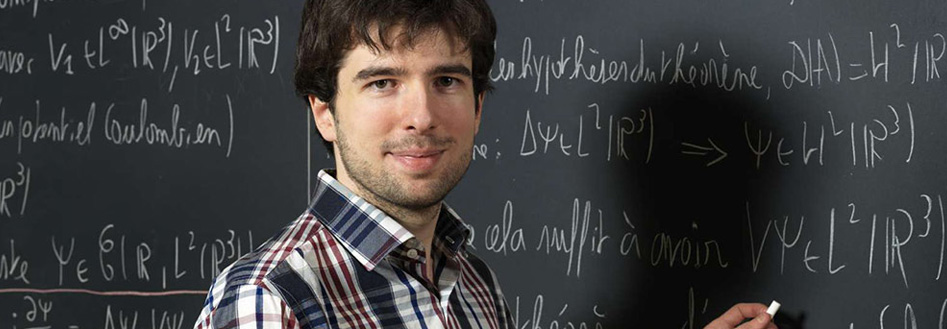
Objectives
The objectives of this option are:
- to train engineers who can master high-level mathematical concepts and techniques and who are able to apply them effectively in a variety of professional contexts;
- to support students interested in research/R&D, in both academic and industrial environments;
- to offer a wide range of career perspectives in all industrial sectors (energy, transportation, banking, insurance, health, IT, etc.).
Teaching
The instruction for this option is characterized by:
- a balance between theoretical knowledge and its applications, resulting from a combination of classes, projects and case studies;
- high-level scientific instruction provided by renowned instructor-researchers;
- the involvement of business professionals in coursework, conferences, visits and recruitment;
- a strong elective component, enabling each student to adapt their studies to their own objectives and strengths;
- strong links with other departments enabling students, if selected, to complete their studies in a double degree.
Certain students in the option will therefore complete a 2nd-year Research Master’s degree in supplement. They can also take the Actuarial Studies course in partnership with the Université Paris Dauphine to obtain the title of Actuary.
Further details are available on the Applied Mathematics option website.
Program
Fundamental courses
These aim to provide students with the knowledge and know-how needed for all fields of application:
- Random Processes: stochastic calculus, statistics, data analysis and learning
- Simulation: functional analysis, digital methods
- Optimization: discrete and continuous optimization, optimal control
- IT: object design and development, C/C++ languages
Elective classes
Elective classes can be broken down into three majors:
- Mathematical Modeling
- Data Sciences
- Financial Mathematics and Actuarial Studies
It is also possible to ask to complete classes among those proposed in the “Math-Physics” track, shared across the Applied Mathematics and Physics and Applications option.
Students must complete seven elective classes, including four in their major.
Research Initiation Seminar
The seminar is a laboratory or in-house company project chosen by students. It runs from October to March, one day per week. This gives students a true experience of problem resolution as well as an experience of the world of research or business.
Classes
Fundamental classes
- Functional Analysis
- Digital Methods
- Stochastic Processes and Stochastic Integration
- Statistics Data Mining and Learning
- Optimization
- IT
Elective classes
For each of the seven elective slots, students must choose one class among the three or four proposed in parallel. The only constraint (Master’s excl.) is that you must choose four within the field of your chosen major.
Mathematical Modeling major
- Differential and Stochastic Partial Differential Equations
- Levy and Markov Processes
- Risk Control
- Advanced Digital Methods for Complex Phenomena
- Digital Analysis and Approximation for Propagation of Fronts
- Hyperbolic Systems and Conservation Laws
- HPC and Modeling
Data Sciences major
- Machine Learning for Computer Vision
- Geometric Methods in Data Analysis
- Deep Learning
- Neural Information
- Introduction to Distributed Optimization and Computing
- Computer Graphics
- Introduction to Medical Image Analysis
- Discrete Optimization for Vision and Learning
- Polyhedral Combinatorial Optimization
Financial Mathematics and Actuarial Studies major
- Shares and Equity Derivative Models
- Digital Methods for Finance
- Calibration of Models
- Energy
- Contingency
- Market Physics
- Reinsurance
- Fixed Income
- Structured Finance
- Structuring
Students wishing to do so can request to substitute one elective class with one of the four mandatory classes of the Mathematics-Physics track.
Mathematics-Physics track
Students admitted to this track will complete the following mandatory four classes:
- Lie Groups and Algebra
- Disordered Systems and Percolation
- Quantum Field Theory
- Topics in Mathematical Physics
as well as the Differential and Stochastic Partial Differential Equations class and three others among the fundamental classes described above, according to the profile of each student. Over and above these classes, students will devote one or two days per week to working on their research project.
Contact
- Option Director
Pauline Lafitte - pauline.lafitte@centralesupelec.fr - Mathematical Modeling major
Pauline Lafitte - pauline.lafitte@centralesupelec.fr - Data Sciences major
Nikos Paragios - nikos.paragios@centralesupelec.fr - Financial Mathematics and Actuarial Studies major
Lionel Gabet - lionel.gabet@centralesupelec.fr - Mathematics-Physics track
Erick Herbin - erick.herbin@centralesupelec.fr
Career opportunities
French and international companies highly appreciate engineers with both a generalized education – meaning they can assess a problem in its entirety – and a high-level education in the field of applied mathematics – enabling them to accurately analyze and quantify problems encountered.
Typical career applications include:
- Design, development and research in industry (energy, aeronautics, automotive industries, etc.) and services (software, health, etc.);
- e-Business, big data (within multinationals, traditional industries, service providers, consultant firms or start-ups). This option prepares future engineers with scientific approaches, combining statistics, IT and digital, and the challenges of big data;
- Actuarial studies, insurance (technical studies, design and pricing of products, etc.), banking (quantitative research, risk management, trading, structuring, asset management, etc.), energy markets (pricing, trading, risks, etc.);
- Academic research (within large organizations, universities, etc.).
Partners
- AXA France
- Banque de France
- BNP Paribas
- CEA
- Deloitte
- EDF
- ENGIE
- ESI Group
- EY
- Crédit Agricole Group
- Société Générale
- Thomson Reuters
Strengths
- The large variety of career applications both in France and internationally
- The possibility for each student to personalize their program
- The involvement of companies in all instruction activities
Mechanics, Aeronautics and Space (MAS) option
MAS engineers are required to address the technological and management challenges of the future.
Aware of the main issues faced by companies, MAS engineers will work their way to the highest levels of responsibility.
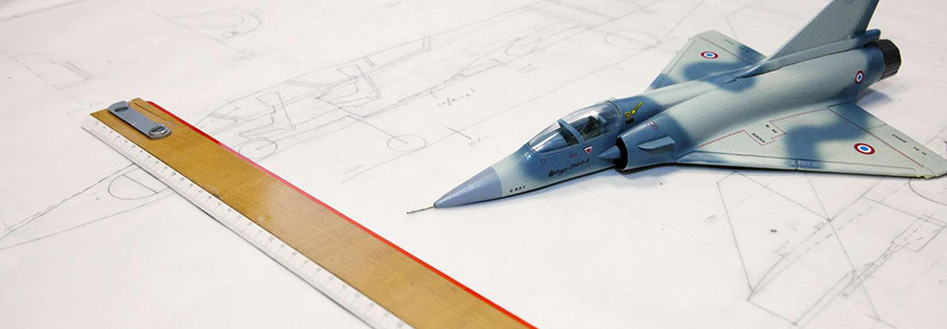
Objectives
With solid scientific and technical training, mastering design and simulation tools, MAS engineers are real bearers of innovation, technology integration and action for deploying complex systems engineering.
Teaching
This training proposed within the MAS option is broken down with a common core, enabling students to discover modern high-level methods enabling them to manage the increasingly complex projects of our times in the industrial world.
This systems approach is completed with a specialization to be chosen among the various themes addressed in MAS:
- Mechanics of Materials
- Structural Calculation
- Linking and Interaction
- Propulsion
- Fluid Mechanics
- Signal Processing
- Monitoring
- Analytical Modeling
- Systems
Program
The common core: Systems Approach to Industrial Projects
Students completing the MAE option will all complete a common core enabling them to learn about the systems approach currently deployed in the automotive, aeronautics and space industries, and in mechanics generally.
This common core comprises the following modules:
- PLM Week (30hrs) class given in collaboration with Dassault Aviation
- Systems case study (45hrs) class given in collaboration with PSA Peugeot Citroën
- Functional Simulation class (15hrs)
- Introduction to the Industrial Environment (60hrs)
- TP Flight (each student pilots a plane for one hour)
- Modern Languages
Six specializations
In addition to this common core, students in the MAS option choose to study more in depth in one or several scientific fields covered by the instruction of the option. The various choices enable students on the option to follow six typical tracks:
- Aeronautic and Spatial Systems
- Automation
- Propulsion
- Transportation Structures
- Civil Engineering Structures
- Energy Structures
They can also register for two Master’s (Mechanics, Aeronautics and Space, and Modeling and Simulation in the Mechanics of Coupled Structures and Systems).
Classes
Common core: Systems Approach Applied to Industrial Projects
- PLM Week
- Systems Project
- Systems Optimization
- TP Flight
- Aeronautics Economics
- Introduction to Companies
- Modern Languages
Aerodynamics
- Fluid Dynamics
- Aerodynamics
- Compressible Flow
- Acoustics
- Computational Fluid Dynamics
Propulsion
- Combustion
- Advanced Combustion
- Turbomachinery
- Turbojet Engines
Monitoring
- Signal Processing
- Systems Monitoring
- Structures Monitoring
- Signal Acquisition and Processing
- Vibration Calculations and Trials
- Digital Control Laboratory
- Automation and Automobiles
- Automation and Aeronautics
- Advanced Automation
- Optimization
Structural Calculation
- Digital Solids Mechanics
- Structures Vibration
- Wave Propagation
- Digital Dynamic Methods
- Identifying and Resetting
- Introduction to Inverse Problems
- Computer-assisted Design
- Project VIbration
Linking and Interaction
- Contact-impact
- Aero-elasticity
- Microstructures Mechanics
- Earthquakes and Works
Systems
- Flight Mechanics
- Satellite Dynamics
- Aeronautics Design and Manufacture
- Plane Project
- Launcher Project
- Embedded Energy
- Satellite Navigation
Materials Mechanics
- Materials Engineering
- Composites Engineering
- Damage and Failure
- Pre-project: Sustainability of Energy Structures
For more information
Mechanics, Aeronautics and Space option website
Contacts
Option Director
Franck Richecoeur
Téléphone : +33 (0)1 41 13 10 82
E-mail : franck.richecoeur@centralesupelec.fr
Career opportunities
The MAS option prepares students for a wide range of activities and services, where competitive advantage lies in technological mastery, essential for resolving complex problems and ensuring permanent innovation.
Typical initial employers for students:
- Aeronautics companies (Airbus, Dassault Aviation, Thales, etc.)
- Safran propulsion companies (Safran Aircraft Engines, Turbomeca, SMS)
- Aeronautics equipment companies (Messier Dowty, Hispano, Air Liquide, Zodiac) and air transport equipment (Air France, etc.)
- Transportation sector companies (Michelin, SNCF, Airbus, Safran Aircraft Engines, PSA, Renault, Valeo, Faurecia, SKF, Bureau Veritas, etc.)
- Energy companies (EDF, Areva, Alstom, CEA, Total, Saipem, Schlumberger)
- Works and construction companies (Bouygues, Vinci, Setec Tpi, etc.)
- Materials development companies (ArcelorMittal, Alcan)
There are also career opportunities in research and development centers within the systems mechanics industry (ESA, ONERA, CNES, IFP, BRGM, etc.).
Partners
Strengths
- Thorough basic training with field activities and opportunities (visits, trips), direct implementation (system project, PLM week), structured projects supervised by professionals.
- A well-balanced network of instructors from the worlds of business and research.
- A partnership facilitating contacts with the professional world.
- The option to prepare three integrated Master’s specialties.
- Support from two laboratories renowned in the fields covered in this option, within which student engineers complete their projects (www.em2c.ecp.fr, www.mssmat.ecp.fr).
- International openness with many instructor-researchers.
Physics and Applications option
The Physics and Applications 3rd-year option is aimed at student engineers of the École Centrale Group (École Centrale Lille, École Centrale Lyon, École Centrale Marseille, École Centrale Nantes and CentraleSupélec) completing the École Centrale Éngineering program, for students wishing to complete a specialty in their Master’s or a Specialized Master’s in Process and Materials Engineering (Physics and Applications track).
It offers high-level scientific and technological training, at the cross-section of fundamental science and high technology applications. The option explores several key fields, in particular: nanoscience and nanotechnologies, materials, biophysics, matter and energy.
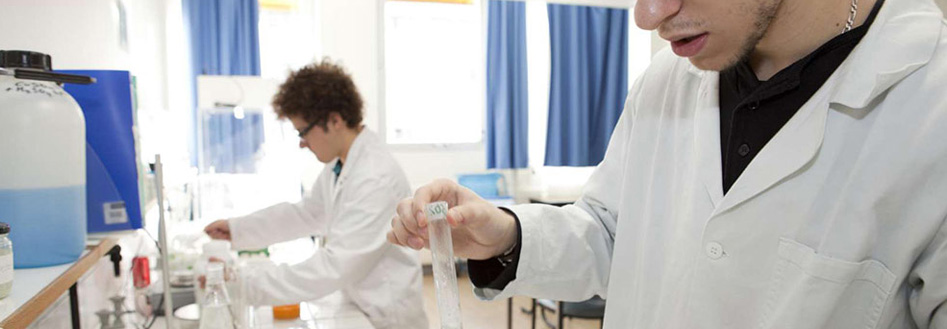
Objectives
La formation s’appuie naturellement sur le corps des enseignants-chercheurs de CentraleSupélec et de ses laboratoires CNRS, mais aussi sur les partenaires industriels de l’option, ainsi que sur l’intervention de personnalités extérieures du monde académique ou de l’entreprise.
The training is completed in one of two tracks:
- The Physics for Technological Innovation track trains engineers capable of applying sound scientific knowledge and skills to the world of business, in innovative sectors such as micro- and nanoelectronics, biotechnologies, medical imagery, space, IT technologies, production and energy storage, etc.
- The Physics for Scientific Innovation track enables students to follow a simultaneous Research Master’s. It offers a specialization in a field of research of the student’s choice among a wide range of options, providing fundamental comprehension and know-how. It naturally leads on to a doctoral thesis.
Teaching
The program comprises joint activities and à la carte activities:
- A “survival kit” in advanced general physics
- Activities that are specific to each track (industrial/research issues)
- Majors based on a cluster of elective classes
- Practice using experimental and digital techniques adapted to each track
- A personalized and supervised project, completed in immersion in a laboratory or company
- Field activities (company visits, laboratory activities)
- Introductory seminars
Program
Physics Survival Kit
Completed by all students at the beginning of the year, this is a foundation for advanced general physics that all physical engineers require.
Students can then follow one of the two tracks via their chosen major and discover experimental techniques and applications.
Majors
Majors add a real essence to the student’s training. These comprise a cluster of classes, given in small groups by instructors of the school or by guest speakers renowned in their fields of research. The wide-ranging offerings (four to five classes chosen from a total of around 15) enables students to study certain fields in depth, from the most fundamental to the most applied.
Learning instrumentation methods and digital simulation
This is done via research or R&D laboratory activities, in the form of an experimental workshop over five sessions, and short experimental studies implementing recent techniques under the responsibility of an instructor-researcher or external field expert. Focus is placed on practice in a real situation. Concerning digital simulation, the modeling workshop is the opportunity to explore concrete and physical cases.
The project
The project is completed between October and March, requiring one day per week, alone or in pairs. Subjects are proposed by industrial partners, by instructor-researchers or by students themselves. They can be of an experimental nature (in laboratories of the school), or based on modeling or design tools. Projects are individually supervised by an instructor-researcher of the school.
The project is assessed by a report and oral presentation given in front of all students completing the option.
Field and activity discoveries
- Specific activities focused on industry: R&D case studies, data analysis, metrology issues
- Industrial company site visits and meeting employees of companies which are partners of the option
- A visit to an academic site (external to CentraleSupélec)
- Seminars, given by guest speakers
Classes
Classes
- Dense Environments
- Statistical Physics and Transport
- Matter and Radiation Interactions
- Modeling Workshop
Examples of majors
- Astrophysics / Particles
- From Stars to Planets
- Particles
- Non-Equilibrium Environments
- Advanced Materials
- Components for Micro- and Nanoelectronics
- Materials for Energy
- Ferroelectricity
- Magnetism and Superconductivity
- Biophysics
- Nanoparticles in Biology
- Soft Matter
- Static Optics, Complex Environments and Imagery
- Theory of Condensed Matter
- Magnetism and Superconductivity
- Advanced Methods (DFT)
- Order, Disorder and Symmetry
- Quantum Physics and Chemistry
- Sensors of the Future
- Nanoscience and Nanotechnologies
- Components of Micro and Nanoelectronics
- Optoelectronics
- Introduction to Methods of Analysis for Biology
For more information
Physics and Applications option website
Contacts
Option Director
Bruno PALPANT
Téléphone : +33 (0)1 41 13 16 26
Courriel : bruno.palpant@centralesupelec.fr
Career opportunities
All sectors requiring innovative high-level technologies:
- Microelectronics and (opto)electronics
- Information technologies
- Nanotechnologies
- Functional materials
- Biotechnologies
- Medical imagery
- Energy
- Transportation, aeronautics and space
- Fundamental sciences, etc.
There are also career opportunities with technological industrial companies with high added values (Thales, Schlumberger, iXBlue, etc.)
For more information visit: www.option-pa.ecp.fr
Partners
Other industrial partners
- Horiba Jobin-Yvon
- iXBlue
- Laboratoire national de métrologie et d’essais
- ONERA
Strengths
- The sound scientific training enables students to exploit the most recent knowledge with creativity to generate innovative applications.
IT and Advanced Systems Engineering option
IT and communication sciences are at the heart of the industrial revolution into which the beginning of the 21st century finds itself plunged.
It is a high-growth sector, evolving rapidly, founded on technological progress and having a highly visible impact on our society.
Companies are seeking high-level profiles, individuals who know how to master these technologies and their impact on companies’ strategies and employees, and al in a spirit of creativity and adding technological, economic and societal value.
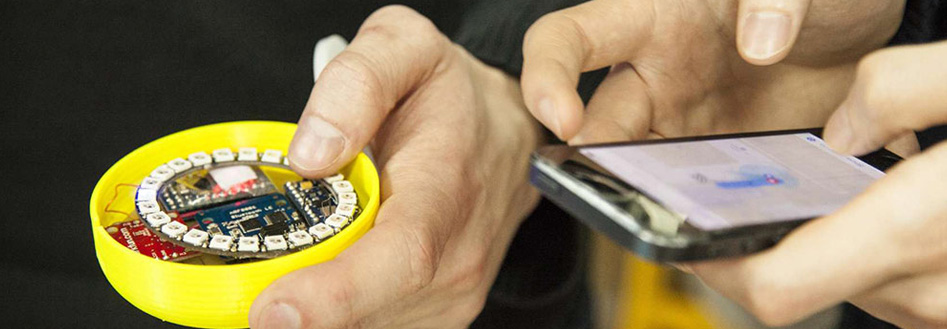
Objectives
To train non-specialized engineers able to invent, integrate and assemble technologies to build complex industrial and company systems where software is dominant (embedded systems, IT and IS) meeting the work-related and scientific needs of companies in all industrial and economic sectors (space, air transport, road and railway, energy, banking and insurance sector, software editing, etc.).
As such, the option objective is to train systems architects who are able to understand both the technical dimensions associated with navigating large-scale industrial projects, and the managerial dimensions of managing such projects.
These engineers will thus develop their creative, entrepreneurial and organizational skills along with acquisition of high-level scientific knowledge, so that they can integrate large technical and human systems.
Teaching
The option includes three tracks that represent three major career families:
Business IT track
This program provides students with a global vision of the company information system. Based on a vision of the company architecture, the instruction is structured around the main components of the information system, focusing on modeling work-related processes. Field professionals are involved in the instruction and students exercise practical experience through case studies that enables them to gain an understanding of the articulation between these components (company management, production, finance, customer management, steering and decision-making, knowledge management).
IT Systems track
This program provides specialization in developmental and design technologies applied to information systems. Students learn concepts of modeling, specifications and development, as well as the advanced aspects of architecture of information systems such as distributed architecture, systems optimization or big data processing.
Advanced Systems track
This track explores the design and control of information processing systems in real-time in industrial processes, such as embedded systems. It integrates the material constraints of real-time control systems as well as those of controlled technical systems.
The instruction of this option is delivered in close collaboration with sponsors of the option, the MICS (Mathematics and IT for the Complexity of Systems) research laboratory and the LISA (IT and Advanced Systems Laboratory) teaching laboratory.
Classes
The instruction for this option is organized within a common core, three tracks and elective modules. Each student completes the common core module classes, those of the track they have chosen and have access to all elective modules.
Common core
- Systems Software Architecture
- Advanced Algorithmic
- Advance Modeling and Programming
- PROG C Workshop
- C++ Software Workshop
- BDA Updating Workshop
- IT Systems Security
- Start-up Workshop
IT Business track
- Advanced Database
- Systems Technical Architecture
- Business IT (strategy, cost, urbanization, performance measures)
- Process Architecture and Management
- IT Infrastructure Outsourcing
- Implementing Apps in Cloud
- Big Data Approach in Companies
IT Systems track
- Introduction to Formal Verification
- Modeling for Software Engineering
- Web Information Research
- Software Development Workshop
- Optimization
- Advanced Databases
Advanced Systems track
- Electronic Systems Design
- Microprocessors
- Programmable Components and Digital Synthesis // A,B
- Servo Systems
- Robotic Systems
- Embedded Networks
- Connected Objects
Elective classes
Students choose four elective modules:
- Computer Law
- Artificial Intelligence
- Data Mining, Business Intelligence
- Parallel and Distributed Algorithms
- System Control
- Man-machine Interface
- Cryptography
- Computer Vision
- ERP/CRM
- Telecommunications and Networks
- Real-time and Embedded Systems Engineering Software
- Software Verification: Test and Proof
Projects associated with laboratories
The program is supplemented by several supervised mini-projects, and by a cross-functional project undertaken in teams. The latter can be proposed by industrial sponsors of the option or by students. Some projects may lead to the creation of start-ups or the launch of open-source initiatives.
Contacts
- Advanced Systems Option and Track Director
Jean-Marie Détriché - jean-marie.detriche@centralesupelec.fr - IT Systems track
Céline Hudelot - celine.hudelot@centralesupelec.fr - IT Business track
Julien Escribe - julien.escribe@centralesupelec.fr
For more information
Contacts
- Responsable de l'option et du parcours Systèmes Avancés
Jean-Marie Détriché - jean-marie.detriche@centralesupelec.fr - Parcours Systèmes d’Information
Céline Hudelot - celine.hudelot@centralesupelec.fr - Parcours IT Business
Julien Escribe - julien.escribe@centralesupelec.fr
Industrial partners
- Accenture
- Adobe
- Amadeus
- Bouygues Telecom
- Crédit Agricole
- Klee Group
- Lucca
- OCTO Technology
- Orange
- Planisware
- Safran
- Schlumberger
- Société Générale
- Solucom
- Solystic
- Sopra Steria
- TF1
- Thales
- Theodo
Career opportunities
The training responds to a growing demand from industrial companies and provides openings for the following positions:
- Design engineers, IT systems architects, project managers, all participating in the design of IT systems in the software industry, or in the IT Systems departments of large companies
- Consultants in IT systems strategy or management, functional consultants, contributing to optimization of job-related processes with contributions of new technologies, in consulting firms or functional departments of large companies
This training, through the scientific and technical foundations taught, also enables students to establish careers in research and development departments both in larger industrial groups and in public research institutes. It can also prepare students to pursue a doctoral thesis and envisage careers in fundamental or applied research in IT, in higher education institutions or public research institutions such as the CNRS or Inria.
Biotech Engineering option
Health, environmental protection and implementing renewable resources are all part of the major issues of the 21st century. Meeting these challenges requires revisiting modes of production (reducing ecological footprint, leaner material and energy processes), promoting alternatives to fossil fuels (biomass, recycling, redeployment of materials for other uses), and developing new products and services.
Biotechnologies are at the heart of solutions enabling us to take up these challenges. Indeed, hinged between society and ecosystems in the larger sense, biotechnologies link the world of engineering to the living world:
- either to produce matter, energy and products with biological (often microbial) systems,
- or by acting on the living world to perform diagnoses, to transform, purify or repair it.

Biotechnologies provide solutions that enable the rise of the bioeconomy, the true industrial revolution of the 21st century.
The processes and products generated by biotechnologies are found in the flagship sectors of the pharmaceutical industry (biomedicine, vaccines), the cosmetics industry (innovative biodegradable products), agribusiness (functional ingredients and foods), the environment (bio-depollution), green chemistry and performance materials (biofuels, bioplastics, platform molecules from biomass), and in the medical sector (prevention, diagnosis, therapy).
The field of industrial bioprocesses and medical biotechnologies is rapidly expanding, which is constantly heralding new scientific discoveries and technological innovations. This opens the door to many career opportunities in all types of companies (start-ups, SMBs and large companies).
The CentraleSupélec Bio Tech Engineering option aims to train students who are able to:
- design new production that is more sober and presents a smaller ecological footprint for industry;
- develop biorefineries to progressively substitute fossil resources with biomass and more generally embrace the bio-industrial revolution;
- analyze huge and varied data (Big Data) generated by the living world to create new products and services in the field of medicine, health and the environment;
- introduce new miniaturized and biocompatible technologies for the benefit of humans and of the ecosystems.
This option is highly interdisciplinary, because the skills and know-how of a biotechnology engineer require a deep knowledge of many disciplines due to the complexity of living matter.
This is comprised of:
- 1 common core, 230 hours, including a project.
This project is completed by students in collaboration with a partner of the school, and prior to their end-of-studies internship within a company. - 2 tracks, equating to approximately 200 hours each:
- Industrial Bioproduction and Environment
- Medical Biotechnologies for Health
The student must choose which track they wish to follow due to the significant differentiation between them.
Hourly volumes are given for informational purposes only (+/- 10%) and may change.
Common core
- Biology (50hrs)
- Digital Modeling and Methods Applied to Living Matter (30hrs)
- Exploration of Data Mining Statistics (30hrs)
- Instrumental Physics - Biocaptors (30hrs)
- Economic, Socio-cultural and Regulatory Context (15hrs)
- Project (150hrs)
Industrial Bioproduction and Environment track
This track aims to train engineers to work in the highest levels of bioproduction industries (using micro-organisms to produce molecules and materials of interest, such as bioplastics, cosmetics ingredients, etc.), and production of matter from biomass. The main necessary disciplines are processes and control/command. Contributions in fluid and energy mechanics will be used.
Classes
- Industrialization of Processes (45hrs)
- Bioproduction (30hrs)
- Energy Optimization of Bioproduction Processes (20hrs)
- Command Control (20hrs)
- Environment Processes (40hrs)
- Immersion in Biorefinery (1 intensive week)
Medical Biotechnologies for Health track
This track aims to provide student engineers with the in-depth knowledge to respond to the major evolutions of biomedical engineering. Additional classes in Biology and Biostatistics will be provided along with instruction in the common core modules. Classes in Neuroscience, Bioinformatics, Biomechanics, Medical Imagery and Image Analysis will enable students to explore the disciplines that feed scientific innovation (products and services) in the field of health: diagnosis, prediction, treatment, organization of care, etc.
Classes
- Genomics (10hrs)
- Bioinformatics (20hrs)
- Neuroscience (15hrs)
- 2nd Level Data Mining - Application in Genetic and Medical Data (30hrs)
- Medical Imagery (16hrs)
- Image Processing (20hrs)
- Biomechanics (32hrs)
- Healthcare System (15hrs)
- Immersion in a Medical Context (2 - 5 days / care or research / development with a partner)
For more information
- Download the class description
- Contact the Option Director: François Puel of the Process and Materials Engineering Laboratory.
Instruction team
- François Puel (Animation– Processes) - CentraleSupélec, Châtenay-Malabry
- Véronique Letort (Health – Bio Mathematics) - CentraleSupélec, Châtenay-Malabry
- Arthur Tenenhaus (Health – Signal and Statistics) - CentraleSupélec, Gif-sur-Yvette
- Christophe Bernard (Health – Neuroscience) - Inserm, Marseille
- Elsa Vennat (Health – Bio Mechanics) - CentraleSupélec, Châtenay-Malabry
- Emmanuel Odic (Health – Energy) - CentraleSupélec, Gif-sur-Yvette
- Filipa Lopes (Biotechnology – Processes) - CentraleSupélec, Châtenay-Malabry
- Patrick Perré (Bioeconomy – Life Modeling) - CentraleSupélec, Châtenay-Malabry
- Behnam Taidi (Industrial Biotechnology) - CentraleSupélec, Châtenay-Malabry
- Sihem Tebbani (Automation – Biotechnology) - CentraleSupélec, Gif-sur-Yvette
Contact
François Puel
Option Director
Téléphone : +33 (0)1 41 13 11 09
E-mail : francois.puel@centralesupelec.fr
For more information
Download the class description
Option organization
Partners
Companies and institutions interested in the BioTech option are:
- Air Liquide
- ARD
- Arkema
- Avertim
- Bureau Veritas
- EDF
- IFSBM
- IntegraGen
- Irstea
- Pierre Fabre Laboratories
- SUEZ Environnement
- Veolia
- UCB Pharma
Career opportunities
This option prepares students for a very wide range of activities and services, where competitive advantage requires technological mastery and ongoing innovation.
Careers prospects for the Industrial Bioproduction and Environment track include:
- Study and development leader in the field of process engineering
- Production manager, project manager on industrial sites
- Manager for developing new services using big data generated by production units, water distribution networks or material collection
- Key accounts manager to propose material/energy processing solutions (products/ services) to communities and industrial sites
- Consultancy careers to promote circularity between production sites, optimize the use of materials and energy resources and reduce the environmental footprint of human activity (housing and industry)
Careers prospects for the Medical Biotechnologies for Health track include:
- Manager for designing new technologies for diagnosis and treatment (fast, personalized non-invasive) using microsystems and imagery techniques
- Manager for developing new services using big data generated by medical analyses, patient flows, treatment networks (particularly: bio-programmer or bio-statistician for data analysis, “omics” related sciences or any type of Big Data in the field of health)
- Algorithm developer for medical imagery analysis, to assess the impact of new medicines and treatment techniques (in-silico development)
- Consultancy careers for health systems organization and administration in a given region
Presentation of the option on video by student engineer Claire-Marie Sers: (produced by the NX Student Association)
video : https://youtu.be/dPaM5thi7l4
Voir aussi ci-dessous le LIVE de présentation réalisé sur YouTube :
video : https://youtu.be/t6X1xaHHh2U
Centrale Entrepreneurs stream
Entrepreneurship isn’t just for other people. How can you really create your own company during your studies or as soon as you finish studying? The Centrale Entrepreneurs stream helps students looking to develop their idea into something concrete. For more than seven years, the school has helped its students to create several dozen companies in France and abroad, of which 90% are still active, innovative and creating jobs.
The program offers an intense experience of personal growth during 15 months of learning how to balance freedom and responsibility.
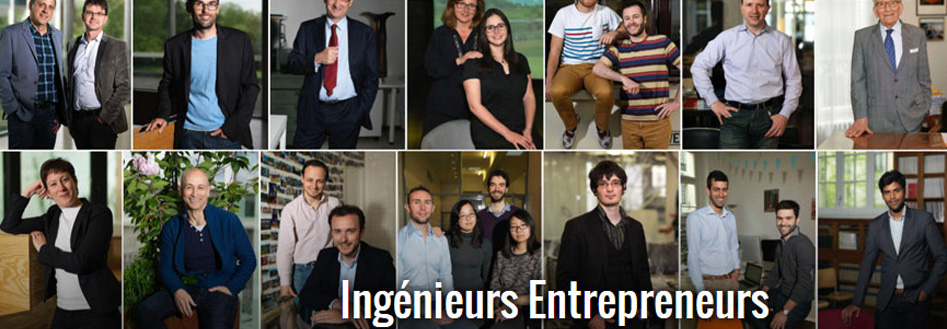
Objectives
The Centrale Entrepreneurs stream is aimed at student engineers who:
- are conducting a company creation project or
- want to discover in practice how a company is created
This stream aims to support students in developing new strategies that are essential in their professional lives, especially so for an entrepreneur. These include:
- guiding one’s actions and professional plans
- being proactive and solution-oriented
- accepting and managing complexity (people/money/work/pleasure/social contribution, etc.)
- accepting and managing one’s emotions (fear, stress), developing self confidence
- developing autonomy
- learning to interact with others – positioning oneself, communicating better
- developing one’s creativity, proposing innovations, without forgetting rigor
- better understanding one’s own behavior and that of others
- learning to make choices and decisions
- conciliating freedom and responsibility
All of these strategies are applied to the development of a company creation project – and beyond this project, each year students create their own companies in the course of the 15 months of the stream. The end-of-studies assignment does not take the form of a classic internship within a company, but must be an environment in which the above strategies are implemented for the success of the students’ personal projects (alone or in groups), or for a project provided by external entrepreneurs.
The stream also teaches students a number of management skills necessary to an entrepreneur: strategy, marketing, finance, resource management, strategic management, sales, negotiation, etc. The stream enables students to discover the key questions and issues in each of the fields they study. Personal development is required to understand these fields in depth, especially over the course of the assignment.
Teaching
Students in this stream also complete in parallel:
- A personal project (proposed by the school or chosen by the student), which is conducted as a real creation project, assisted by a company creation coach;
- A stream-specific teaching, including two weeks spent with students of the Technology and Management Master's, all business school graduates.
Principles and teaching approach
- You can create a company without having any prior professional experience.
Each year, students in this stream really do create their own companies. Most of them are still developing their business today and deriving a lot of enjoyment from it. Students who choose not to create a company nevertheless gain an intense experience and acquire skills that are sought after by companies. - Becoming an entrepreneur isn’t something you learn about in books; you live it.
Autonomously managing a project – even with safeguards – for seven months, defining objectives oneself, is clearly a task that is both difficult and exciting. Discovering the emotions that it generates is an integral part of the learning process. - Experience is a virtue.
Making a mistake under supervision or succeeding alone is a much greater learning experience than learning or following instructions without really understanding why. - Information should be introduced, not overloaded.
This stream introduces students to key subjects, but does not aim to teach them an exhaustive amount of content on these subjects. Students can research further outside of studies, or ask for help if needed.
Key attitudes and behaviors
Three key behaviors are particularly developed:
- Having a detached view
- Managing relationships with others
- Positioning
on three thematic levels:
- the project
- the project leader
- others
Program
The teaching module program for the stream is as follows:
- 1st week: Special Guests Share Their Experiences Week
Several entrepreneurs come and share their experiences and respond to your questions. In parallel, principles of company creation and development are presented. - 2nd week: Financial Case Study (real)
After reviewing the concepts of Finance from the 2nd year and a day of lectures given by an experienced financial director, an entrepreneur comes in to present the figures of their company and their development project: you can then propose possible solutions after working in small groups. - 3rd week: Strategic Marketing
What do clients really purchase beyond a product or service? The importance of understanding underlying needs. The notion of target approach angle and of singularity to go beyond what is comparable and to have excellent relationships with clients. - 4th week: Business Plan
What is it? What is it for? What are the relevant concepts to implement? How does a bank manager, a business angel or an institutional investor assess your application? This week combines theory with presentations from experienced entrepreneurs and financial professionals. - 5th week: Operational Management
Action plans, time management, team management. How to reconcile long-term strategy and the first short-term actions? How to concretely advance when you don’t yet feel legitimate? - 6th week: Sales/Negotiation
Some theory, lots of practical exercises. Filmed exercises and debriefing with a sales expert.Entrepreneurial Project: Immersion
In late April, students in the stream begin work on their company creation project instead of an end-of-studies internship. Some will collaborate with others (within the stream, with other students from the Écoles Centrales or other schools, or even with more experienced professionals), while others prefer to work alone. The aim is to implement what they have learned in class (as described above) and increase the “Action/Reflection” ratio. This means actually immersing themselves in the marketplace to meet potential clients, suppliers and partners, and to validate or explore prior hypotheses, taking all this new information into account to iteratively adjust their action plans and increase the viability of the project.This immersion phase of the entrepreneurial project is a key fundamental learning stage of the stream. As such, it is not compatible with the completion of a Research Masters or a Specialized Masters (which would shorten this project).
During this project, participants can take advantage of:- coaching and supervision over time (generally by a company creator)
- development day (communication workshops; RH approach, etc.)
- meeting with experts according to needs
- Two juries
At the beginning of July and beginning of December, participants come and present an overview of their work to a jury of company creation professionals. As well as obtaining a grade that contributes to completion of the stream, these juries help students to take a step back and leave with lists of recommendations (each member of the jury completes a sheet), which are very useful for seeing how the project is perceived and to identify areas for improvement.
CONTACT
Stream Director
Éric LANGROGNET - eric.langrognet@centralesupelec.fr
Career opportunities
The aim of the Centrale Entrepreneurs stream is clearly to help you create your company with maximal likelihood of success. Many students have tried and succeeded. Those who have chosen not to create a company themselves have easily found jobs in a wide variety of sectors (consultancy, civil engineering, banking, fundamental research, etc.).
More than 60 companies have been successfully created by students from this stream.
Quelques exemples d'élèves ayant réellement créé à la sortie de l'École :
- F. Poulet : www.novatim.com
- P. Leurent, R. Marmot, E. Vial : www.voluntis.com
- A. Delattre, B. Jeuhomme, T. Leteurtre, D. Lucas : www.anevia.com
- M. Carré : www.medialis.info
- L. Landman, J. Krief, F. Allard : www.adopale.com
- M. Viala : www.makingprod.com
- D. Delhomme, A. Lugardon : www.naskeo.com
- A. Chatelain : www.quelleenergie.fr
- C. Kohlheim : www.avenir-investir.fr
- G. de Calan, O. Brachet, G. Bouchet Doumenq : www.nanoe.fr
- Marie Merouze : www.marbotic.fr
- Nicolas Steegmann : www. stupeflix.com
- Dorian Tourin-Lebret, Charles Gourio, Henri Colas : www.smart-impulse.com
- Pierre-Louis Theron, Nikolay Rodionov, Axel Delmas : www.streamroot.io
- Matthieu Achard, Thibault Taupin : www.track.tl
Strengths
Enjoy. Learn. Grow
Innovative Systems Design and Development stream
We have definitively entered the era of an intensive and systematic innovation economy. Companies must constantly renew their product and service offerings to meet the new needs of their clients and to do even more to surprise and attract them.
Design is essentially multidisciplinary, and the result of a design process is a sound compromise among several criteria. The innovative design of complex products and services requires a structured industrial approach that still leaves room for a multidisciplinary group to be creative.
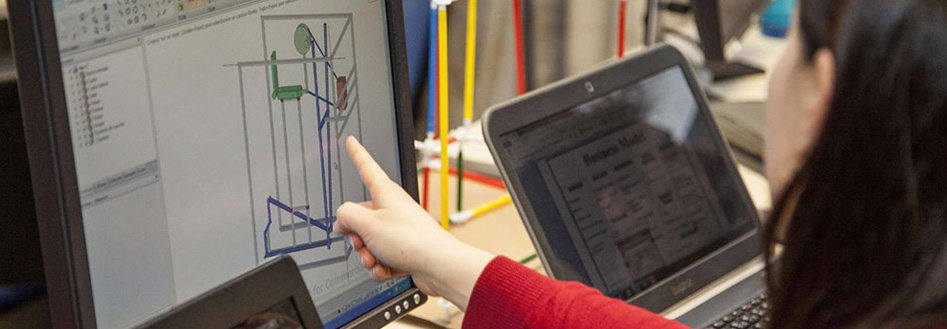
Site de la filière : www.fci.ecp.fr
Objectives
The stream trains students to work in new product and service launches, i.e. innovative design and industrialization careers.
The aim is to train students to become computing engineers and architectural engineers or to assemble complex systems within a design-industrialization project. Students must gain the right tools, reasoning, action strategies and problem resolution processes to be able to understand and bring about industrial innovation.
To do this, focus is placed on tools and approaches to digital engineering that represent solution architectures, simulation/calculation and dimensioning, as well as collaborative engineering for managing processes, documents and milestones in the project.
The major issues relating to industrial design are also addressed: analyses of the markets, needs and uses; design of reliable and robust systems; quality, targeted and systematic innovation; industrial knowledge management and managing an innovation project; and cost and risk management.
Teaching
The program offers a balanced teaching syllabus, punctuated by:
- Acting in scenarios in the form of five-day workshops where students are actors in a concrete innovative product/service/economic model team project; this is the opportunity to undertake a project as it would be conducted in a company, supervised by experts in their fields and assessed by a jury of professionals;
- Interactive classes and presentations to introduce approaches, methodologies and generic tools relating to innovation and design processes in business;
- Speakers from different sectors talk about specific issues relating to automobiles (organization, issues, and competition), aeronautics (multiphysics simulation, weight reduction and cost), construction (regulations, practices), the aging population (customer needs, emerging markets), industrial design (attitude, multidisciplinary collaboration), and more;
- Industrial speakers to share the experiences of business actors in strategy, operational processes and innovation and design jobs, along with their personal experiences.
Program
The program focuses on practical experience, with 60% of action in scenarios during intensive workshops and 60% of classes and lectures given by company executives and entrepreneurs.
Acting in scenarios
Three workshops over five days, in November, February and April, following the stages of innovation and development. You select three from a choice of 14.
One Problem Solving workshop to select from a choice of five:
- Industrial Design (e.g.: designing a new stool-table for a party)
- Radical Innovation (e.g.: prepare scenarios of use for a computer tablet for seniors)
- Bio-inspired Design (e.g.: invent new products and services inspired by nature)
- Service Design (e.g.: revolutionize mobility services)
- Eco-design (e.g.: improving a kettle to reduce environmental impact)
This workshop generates a useful analysis of the problem in order to create value, to propose creative new utilization scenarios and concept solutions.
One Prototyping workshop, to be chosen from five:
- CAD Prototyping (e.g.: computer tablet shelf support)
- Mechatronics (e.g.: electrification of a competition go-kart)
- IT (e.g.: developing a smartphone app)
- Universal Design (e.g.: solution for elderly pedestrians in town)
- New Communication Technologies (developing Open Source solutions with an École Centrale Paris incubated company)
One Complex Systems and Collaborative Work workshop to select from a choice of four.
This consists of simulating a multi-trade project in acceleration mode, working in competing groups of six people. The four workshops explore: designing part of an electric racing car, developing manufacturing processes for a Dassault Aviation Falcon part, launch of an innovative banking service, and the design and parametric optimization of a family of products. This requires learning about a collaborative design platform and management and synchronization of business processes by integrating “innovation areas” to arrive at a satisfactory compromise using compromise and optimization techniques.
The two other class modules of the stream:
- Knowledge of companies and industrial sectors
- Self-knowledge and industrial careers
Sharing experiences
Halfway through the internship (in early September), students spend a week together for Experience Feedback, to share and exchange with each other about their experiences and objectively assess their project in the company and the results expected from them for their end-of-studies presentation and preparation for their first job.
This is also an opportunity to share your experience with new students.
Career opportunities
The industrial sectors targeted are vast and non-exhaustive: automobile, railway, aeronautic and naval industries, the capital goods industry, luxury industry, mass markets, the process industry (metal and chemical), innovative service industries (telecom, banking, insurance, B-to-B) and services to communities.
The stream trains students for two careers that are highly sought after currently: complex systems design and innovation profiles for engineers – now called engineering innovation. The two are linked due to their contradictory natures, which require high-level understanding of both innovation-development processes within a company and mechanisms for creating value or devaluation in front of clients, and of agile management and decompartmentalization of functions within companies, as well as a systemic view and unrivalled business intelligence to make the company successful.
New innovation careers for engineers in companies are recently emerging. Innovation programs and innovation management functions are currently inserted between research and engineering or development projects. These jobs require an excellent understanding of both opportunities and technological investments, and the knowledge/skills needed in companies in order to manage research projects, skills and careers, as well as to identify clients, markets, competitors and potential partners. Types of vertical open innovation (universities, clients) and horizontal open innovation (partners, including suppliers, subcontractors and even competitors) should be understood and used in a new way (crowdsourcing is one popular method: users give ideas in real-time).
Professional profiles are traditionally:
- Project manager or stakeholder in a complex systems design project
- New product or new service launch project manager
- Architectural engineer, computing engineer
- Industrialization/development project manager
- Purchasing director
- Innovation director
- Quality director
For more information
Innovative Systems Design and Development stream website
Contacts
Stream Directors
- Bertrand ROCHETTE - bertrand.rochette@centralesupelec.fr
- Yann LEROY - yann.leroy@centralesupelec.fr
Secrétariat
- Sylvie GUILLEMAIN - sylvie.guillemain@centralesupelec.fr
Partners
- AKKA Technologies
- Amadeus
- Bouygues Construction
- Colas
- Dassault Aviation
- Safran
- Sagemcom
- Vallourec
- TF1
Strengths
- Enabling student engineers to gain knowledge and strategies that will enable them to be successful entrepreneurs and to create value in innovative projects, ranging from design/development/renewing the company offering, to launching new products or participating in competitive watch and company innovation strategy.
- Providing pragmatic understanding and knowledge about industrial innovation.
Operational Management stream
Putting people at the heart of your organization
The Operational Management stream adopts a professionalizing focus on the human factor. It aims to provide an understanding of the issues associated with human factors in companies, and in every kind of managerial situation that can develop in a company in terms of employee motivation and customer satisfaction. This is a non-specialized stream, preparing students with the relational skills required for their future careers as managers and employees, and to give them the necessary methods and tools via highly practical and interactive teaching.
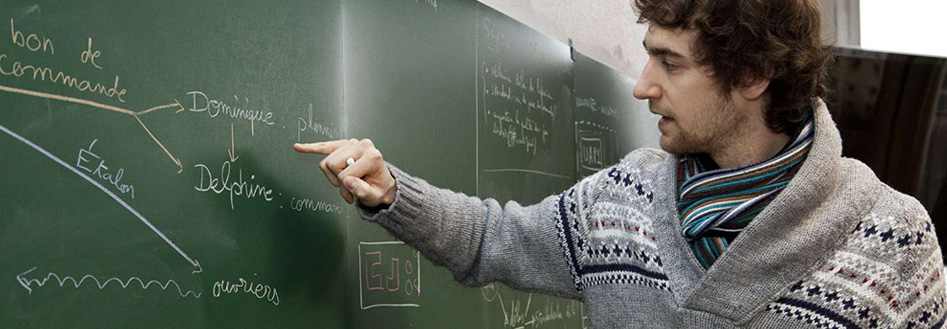
Objectives
The Operational Management stream introduces 3rd-year students to all the necessary skills and approaches required for careers in supervision and management, whatever the sector or type of company.
This stream is for student engineers wishing to begin their careers in positions of supervision or in which human relations play a central role. It covers human aspects, on an individual and group level, but also social, commercial and financial dimensions.
Learning objectives of the Operational Management are:
- to raise awareness of management concepts, methods and practices,
- to learn the key elements of individual and collective communication,
- to learn notions of responsibility and emotional factors of which a manager must be mindful,
- to cover customer relations management and leadership of an operational unit,
- to cover particular management situations according to different specific business sectors,
- to integrate the impacts of multicultural, diversity and intergenerational factors.
Teaching
Learning by doing
Teaching within the Operational Management stream privileges practical learning and concrete scenarios. It is focused on a combination of three further tools:
- Practical and current case studies in companies
These case studies place the student in simulated situations where they are faced with the real issues of Human Relations within a company. These case studies lead to immediate applications within partner companies every year. Three studies will be offered on key themes: Change Management, Client Satisfaction and Subsidiary Management. - Twelve interactive modules
To learn the key concepts of Management by combining psychological and sociological illustrations, true stories, and systematic practical scenario simulations and short business cases. - Some words from management executives
To complete the modules and help with case studies, managers share their experiences of both success and failure regarding contemporary management challenges.
The stream aims to develop the following skills:
- Adopting the position of manager
- Managing a team and sharing your vision
- Organizing and optimizing resources in-keeping with the history of the operational unit
- Contributing to the development of customer relationships
- Contributing to the development of your team and their skills
Program: three sessions, three themes
The stream program is structured around the three key missions of an operational manager:
- Managing people
- Client relationship management
- Managing an operations department
Each session of the stream (November, February, April) will be dedicated to one of these three core aspects.
Classes
Speakers are instructors or professionals who are highly motivated to transmit their concrete experience to students, incorporating the fundamental principles of management.
- Managing People
- Change Management: Gaining Team Cohesiveness and Compliance
- Identifying Your Leadership Type
- Managing Employees and Skills
- Authority Within an Intercultural Environment
- Client Relationship Management
- Operational Marketing
- Negotiating Compromises to Make Decisions
- BtoB and BtoC Customer Relationships Management
- Managing an Operations Department
- Managing and Measuring Performance
- Social Dialogue
- The Manager’s Responsibilities and Ethics
Contact
Stream Director
- Laurent POLET - laurent.polet@centralesupelec.fr
Career opportunities
From Industry to Services
The Operational Management stream is a non-specialized stream that prepares students for all company functions, particularly management positions.
- Site manager
- Team manager
- Workshop manager
- Supply chain manager
- Administrative service manager
- Profit center manager
- Branch manager
- Sales manager
Operations management applies to all economic sectors, as all business sectors enable École Centrale Engineering program graduates to attain operational management positions.
Partners
Partners of the stream want to recruit non-specialized engineers who are aware that they must integrate the human dimension in their future responsibilities. They are therefore actively involved in helping students learn more about their organizations internally, and share actual cases concerning real management issues with them transparently, as well as local managers’ experiences.
Strengths
When describing the key skills they acquired from the stream, students say it best:
- “The stream helped me to put words, methods and means to the impressions I had gained in my internship.”
- “I realized that if my values are shared within the company, they can be a real asset for the company.”
- “You have to learn how to be a good manager.”
- “You learn via practical experience and human contact.”
- “Everything is done to put us as close to reality as possible, so that we can see what really happens in companies.”
- “Because managing people and being authentic are and must be essential in today’s world”
- “You learn a lot about the human dimension in a company, which can be both complex and contradictory.”
- “Talented and committed speakers who taught us a lot”
- “This stream is a useful addition to the options and the otherwise very scientific and rational content of 3rd year modules.”
International Project Management stream
The International Project Management stream prepares students to work in a project environment either in France or abroad.
Companies and organizations often work in project mode and seek employees who are experienced in problem solving, methods of reasoning and project attitudes.
Today, projects are carried out in contexts that are increasingly complex and rapidly changing: missions are increasingly globalized, and new issues must be integrated, such as sustainable development, societal pressures, permanent innovation and the international backgrounds of actors, etc. All these factors require ongoing adaptation of the stream program.
At least half of all stream activities are carried out in English.
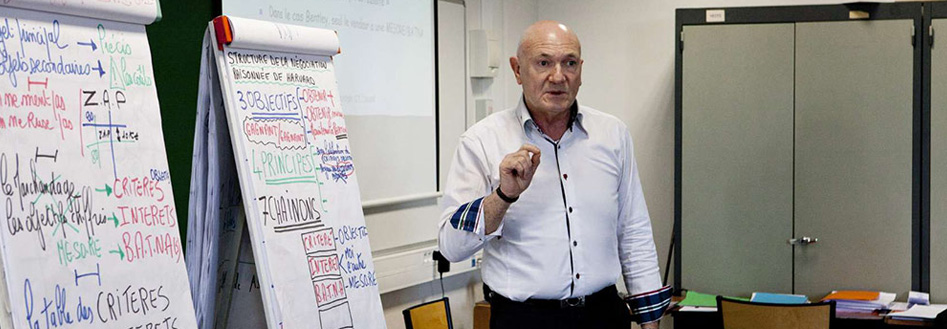
Objectives
To train engineers who are:
- goal-oriented: understand and manage projects to ensure successful outcomes;
- adaptable to a complex, fluctuating and rapidly-changing environment;
- able to manage new contexts with significant technical, cost, time and organizational constraints;
- able to commit to value creation;
- able to manage teams and persuade external actors;
- capable of organizing new industrial developments or to transform organizations;
- capable of implementing project approaches using the appropriate tools.
Teaching
The teaching enables students to experience operational aspects through scenario simulations that develop:
- a culture of anticipation: organizing, managing risks, attention to feedback, others’ experience and promoting the benefits of a multicultural team;
- implementation of objectives: how to define them, break them into smaller steps, share them and use them to delegate work and monitor progress;
- working with others: teamwork success, coordination, respect for people and their cultures;
- setting an example: implication, commitment, goal-orientation;
- the ability to interpret statistics and weak signals and use them;
- the ability to identify the reasons for process failures and to improve them;
- listening and communication skills;
- the ability to incorporate new paradigms (globalization, sustainable development, etc.).
Program
- Launch seminar
Contact with project managers - First session
Focus on fundamental project management tools and methods - Second session
Focus on personal development and project attitude acquisition - Third session
Focus on real-life scenarios and case studies - Individual coaching
To define the professional project and select a company mission - Company placement
Six months minimum, during which coaching continues - Oral presentation
After the internship
Classes
- Company Projects, Types of Projects, Actors
- General Methods of Analysis, Fundamental Concepts
- An Overview of Business, Marketing, Markets and Trends
- Economic Assessment of Projects and Companies
- Functional Analysis, Value Analysis
- Cost Control
- Managing Deadlines, Earned Value
- Monitoring Risks and Opportunities
- FMEA
- Incorporating Innovation
- Integrating Sustainable Development
- Project and Configuration Management
- Managing Complex Projects
- Quality and Subcontracting
- Financing
- Industrial Strategies
- Contracts
- Communication Systems
- Economic Intelligence and Networks
- Opening a Subsidiary or Branch
- Communication
- Principled Negotiation
- Resistance to Stress
- Awareness of Self and How You Relate to Others
- Intercultural Management
- The Middle-East
- China
- Europe
- United States
- Russia
- Southern Countries
- Progressive Cases
- Strategic Cases
Contact
Stream Director
- François Mignot – françois.mignot@centralesupelec.fr
Career opportunities
The stream prepares students for careers in pre-project management, project work or general management profiles.
Careers in Research stream
The Careers in Research stream is for students who are interested in academic or industrial research and would like to pursue either their initial or entire career in or associated with research. The fields covered range from the most fundamental research to R&D applied to industry and service sectors, enabling students to develop during their career in the various upstream environments covered (expertise, research project management, strategy, etc.), or downstream environments in technological development and innovation, introducing students to a rich diversity of activities.
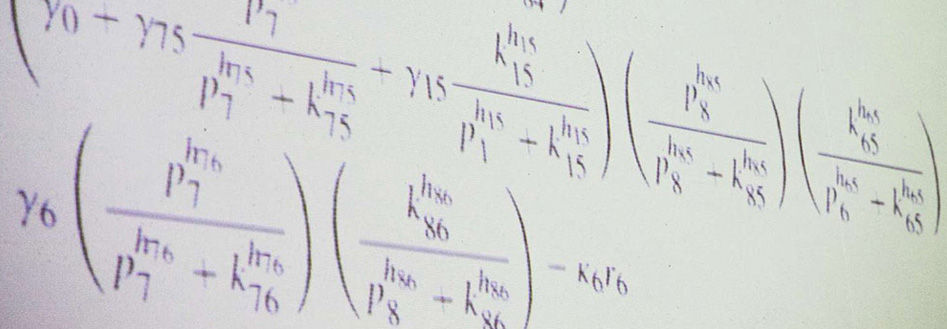
Objectives
This stream aims to give all students a global vision of all research careers, strategies and methodological tools, and provides them an opportunity to experience these through individual or group work, interacting with research environments in both school and partner laboratories. Over the course of conferences, seminars and case studies, the stream teaches students about the main current themes, issues and economic, human, ethical and social issues of research in technology and engineering sciences.
Teaching
The Careers in Research stream offers:
- methodological training in documentary research, technological watch, research project management, collaborative work in an international environment, communication with scientific (journal) and non-scientific (lay) audiences, value-creation, risk approach; these tools are implemented in the context of the option project, to which the stream provides methodological support and enables students to take an objective stance;
- concrete introduction to R&D methods and environments through case studies in laboratories, companies and innovative start-ups, where students work in small groups on real situations, analyzing and dealing with research challenges in their context, contributing to work in progress and submitting a report of their analyses and a “lay” article, and giving a presentation in front of all the students of the stream;
- training on human and social dimensions, with modules that are specific to research careers and environments, to the professional project and that help them gain a better appreciation of their internship experiences;
- conferences and roundtables with researchers of different backgrounds and from different countries, exposing students to the major issues in research, structures and types of funding, the various careers and the strategic importance of an international approach; these are supplemented by visits to large and prestigious sites such as the CERN, the CEA High-performance Computing Center, etc.
- individual supervision by instructor-researchers of the school, helping students to define their professional project and their first professional position, in the form of tutoring groups of four to six students.
The teaching aims to give students the opportunity to participate in roundtables that they can organize themselves, to discover the various research-related careers, structures and sectors and to develop a spirit of exchange and collaboration with other job types and specializations.
The stream is organized so that students completing a Research Master’s can register. Timetables can be modified if required and students can draw on personal activities for their option/masters project.
Program
The stream does not aim to provide any further scientific teaching, but rather provides the opportunity for students to discover and experience other aspects of research career profiles, such as creating and managing projects, human relations, communication, search for funding and international collaboration, as well as awareness of the often interdisciplinary nature of modern research.
The stream is completed over four periods:
- First period (September)
Presentation of careers and structures of research and of their place in the economic value chain, methodological tools, choice of case studies with laboratories, communication, round table discussions about careers with stream partners, a professional project module focused on seeking an internship and the thesis.
- Second period (November)
Working on case studies with laboratories and preparing the lay article.
- Third period (February)
Presentation of case studies in front of all students of the stream; progress on the research project in coordination with the option and/or Master’s (practicing methods); seminars on industrial research and collaborative work, research-industry articulation, risk consideration; conferences (open to school researchers) on the major interdisciplinary themes of research (energy, high performance calculations, history of science), research laboratory visits.
- Fourth period (March/April)
A series of conferences and roundtables (life sciences, nanotechnologies, internationalization of research), a specific module on human sciences and preparation for the experience feedback event. A one-week laboratory immersion can be completed on the initiative of motivated students. A “design project” module will be completed by the others.
- During the internship, two days of feedback on experiences and exchange (this feedback can be done remotely for students completing internships outside of Europe).
The internship, whether it is completed in laboratories or in academic or industrial research units, is regularly monitored by tutors, to whom students submit regular reports and who participate in juries alongside the option instructors.
Classes and activities
- Research methodology and evaluation
- Case studies
- Seminars, conferences and round tables
- Classes and individual work on risks
- Research project associated with the options
- Specific human and social sciences module
- Immersion in a laboratory or “design project” module
Contacts
Stream Director
- Bich-Liên Doan – bich-lien.doan@centralesupelec.fr
Career opportunities
Some students in the stream will go on to pursue careers as high-level research (academic or industrial) experts or managers, beginning with a doctorate and progressing to positions of managing research programs, scientific expertise, team management or research projects.
Others will begin their careers in an industrial R&D center and progress to downstream jobs including management, new product marketing, funding and promoting research, strategy, etc. in several industry and service sectors.
Partners
Strengths
- Supervised by instructor-researchers, students have direct contact with laboratories and research teams of the school and its external partners, and are consequently introduced to the diversity of career opportunities in the fields of research and innovation;
- The case study and project enable students to apply methodological tools in synergy with the option, and can furthermore be adapted to the requirements of any Master’s they may take in parallel;
- The supervision is supported by CentraleSupélec research centers and large institutional research organizations or industrial partners of the school. The instructors are in direct contact with the major evolutions and new paradigms The teaching is aligned to the major developments and new paradigms associated with technological materials and software, while enabling students to take an objective stance on the various aspects and implications of research for social issues.
Strategy and Finance stream
In pre-project or investment decision phases, engineers must propose solutions that combine technical choices, human factors, strategic vision and financial considerations.
The Strategy and Finance stream prepares students to work on problems with rigor, combining these very different dimensions that are sometimes hard to quantify.
Engineers from the Strategy and Finance stream will go on to work as analysts in industrial or service companies (especially consultancy firms), or in financial services.
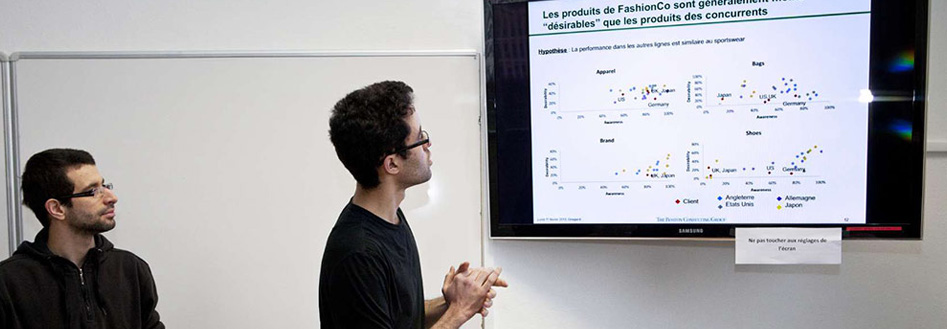
Over and above disciplinary knowledge (of finance and strategy), the jobs require:
- confirmed know-how in problem-solving and summarizing, communication and working in teams,
- cross-sectoral economic culture,
- leadership skills in the absence of a pre-existing hierarchical position and in changing environments
Objectives
- To gain an understanding about careers and the types of problems young professionals in analyst positions will encounter
- To develop the key skills necessary for succeeding in these careers through real situations.
- To define a credible professional project and successfully complete an internship that is relevant to the professional project
Teaching
Teaching in this stream balances theoretical knowledge, methodological learning and scenario simulations in the form of case studies and mini-projects carried out in teams. The program is designed to progressively place students in real professional situations.
Assessments are based on the three major case studies that are worked on over a period of one and a half weeks. These team assessments are presented in the form of feedback on the professional criteria of results and key skills.
The stream offers students the opportunity to take on responsibility for part of the program themselves, either in terms of the content, the organization, teaching relations or the general atmosphere of the course.
These contributions are real opportunities for value creation and professional development, much like case studies.
Program
Cross-disciplinary know-how in the stream
These concern resolution of complex problems and summarizing, written and oral communication and teamwork. They are the main themes around which the classes, case studies, tutoring, feedback and coaching during internships are organized.
Disciplinary knowledge and general culture in strategy, marketing and finance
- Strategy: strategic segmentation, sector assessment, competitive analysis, generic strategies and business portfolio analysis
- Marketing: strategic marketing, client marketing (CRM, customer typology and market segmentation), competitive positioning and mix marketing, innovation and diffusion models
- Company Finance:
- Financial Analysis: refresher of the main aspects of financial analysis (balance sheet, profit and loss account, ratios), accounting and financial standards (France and international)
- Strategic financial management of the company: strategic asset management, bottom-line operations, etc.
- Company finance careers and key issues: finance and the careers for engineers in companies (financial engineers within companies) and financial institutions (M&A, corporate finance), key issues and current challenges (financial analysis, evaluation, financial risk control and management, principles of company financing, growth operations and financial packages)
- International Economics: the impact of crises on state monetary policies and business competitiveness
Scenario simulation / case studies
- Case studies are real professional scenario simulations in which students can exercise their disciplinary knowledge and interdisciplinary know-how learned in the stream. Run by company professionals, these address the following:
- Diagnostic and strategic recommendations
- Financial analysis, company finance
- Business development
Tutoring
Each student in the stream can be supervised by a tutor, a professional of one of the relevant stream careers, in a process that is marked by six steps: clarifying the professional project, writing motivation cover letters and a CV, targeting internship research, practicing recruitment interviews and defining company missions, and preparing for the internship.
Coaching during the internship and for the feedback event after three months of internship: the stream continues during the internship via the coaching relationship that develops between the student and their tutor, which provides students with the opportunity to take an objective overview on the progression of their internship.
After three months of internship, students return to their stream for four days to give feedback about their mission in the company and how they are putting into practice what they have learnt.
This feedback event is also an opportunity to selectively gain further knowledge about certain aspects and to share experiences.
For more information
Strategy and Finance stream website
Contact
Stream Director
- Valérie FERREBOEUF - valerie.ferreboeuf@centralesupelec.fr
Career opportunities
- For all types of sectors:
- Strategy (or marketing) departments: study manager
- Financial or strategic planning departments: Financial Engineer (acquisition and funding, financial guidance, etc.), Comptroller, Internal Auditor
- Consultancy to management, strategy consultancy: Consultant
- Audit: Auditor
- Financial institutions, the same positions as in any type of sector and also:
- Technical departments and banking and insurance risk management: Actuary, Inspector/Auditor
- Corporate banking, investment banking, investment banking, merchant banking (M&A): Financial Engineering Analyst


